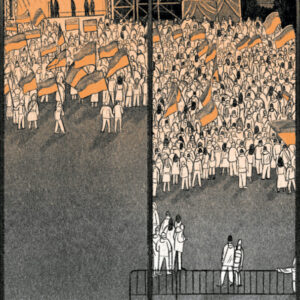
Lit Hub’s Most Anticipated Books of 2021
228 Books We're Looking Forward to This Year
Well, we waited and we waited and we waited and finally it happened: 2020 came to a close. Now that it’s officially 2021 . . . do you feel any better? Marking time the way we do may be arbitrary, but at least this year brings some hope: a Covid-19 vaccine, an official end to the toxic Trump presidency, and of course, on exactly the same level as the previous two items on the list, lots of good books to read. So because we really can’t help you with the vaccine or the virulent shoo-ing, we will now present the 2021 releases—fiction, nonfiction, poetry, and otherwise—most eagerly anticipated by the Literary Hub staff.
Consider this a snapshot of the year to come in books—or the first half of the year, anyway. Some of these we’ve already read, and some we haven’t (yet), but we think you should probably know about all of them. After all, we still have a while to wait for all those good (or at least better) things that 2021 is supposed to get for us. Why not dive in?
JANUARY

Gretel Ehrlich, Unsolaced: Along the Way to All That Is, Pantheon (January 5)
Ehrlich’s 1985 collection The Solace of Open Spaces has become a classic of American nature writing, a celebration of life in Wyoming and the American West at large. That’s enough reason on its own to be excited about her new work, a sort of “bookend” to Solace, this one focusing on observations chronicled and people met while traveling around a world latticed by climate change. –Emily Temple, Managing Editor
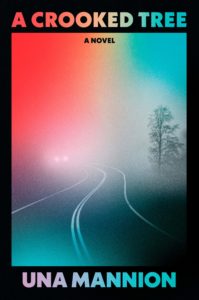 Una Mannion, A Crooked Tree, Harper (January 5)
Una Mannion, A Crooked Tree, Harper (January 5)
People have been raving about Una Mannion’s debut novel and, by the sounds of it, with good reason. Billed as “a portrait of a fractured American family dealing with the fallout of one summer evening gone terribly wrong,” it’s a suspenseful coming-of-age tale, set in rural Pennsylvania in the summer of 1981, that begins with an overwhelmed widow ordering one of her daughters to get out of the car and walk home… I have already pre-ordered my copy. –Dan Sheehan, Book Marks Editor
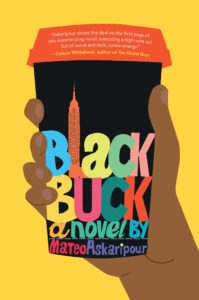
Mateo Askaripour, Black Buck, HMH (January 5)
Askaripour’s debut is a satirical send-up of startup culture—styled as a manual for would-be Black salespeople—in which 22-year-old Darren snags a job at a cult-like company where he is the only Black employee. “The turns in this story are half-absurd, half jaw-dropping, and a whole heaping of crazy,” Darren tells us; with all the comparisons to Sorry to Bother You and The Wolf of Wall Street, I would expect nothing less. –ET

Robert Jones, Jr., The Prophets, Putnam (January 5)
The creator of Son of Baldwin, a widely-followed social media platform that fosters critical conversations on race, gender, class, and other intersecting identities and sociopolitical positions, has brought us his debut novel The Prophets, which follows the forbidden relationship between two enslaved young men working on a Deep South plantation. Described as having a “lyricism reminiscent of Toni Morrison,” Jones, Jr.’s novel reinvigorates familiar themes of pain, suffering, intimacy and love with crucially different orientations, conjuring the voices of the enslaved and slavers, showcasing the power and fragility of love. –Rasheeda Saka, Editorial Fellow
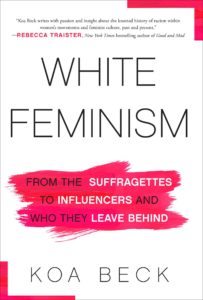
Koa Beck, White Feminism, Atria Books (January 5)
A combination of history and cultural reporting, Koa Beck’s exceptional White Feminism looks at what has passed for “advancement” when it comes to feminist causes, which have too often excluded those who most urgently need advocacy. Following her work on gender, justice, and power at Vogue, Jezebel, and WNYC, Beck now challenges us to rethink feminist discourse and asking what opportunities will open to us in the process. –Corinne Segal, Senior Editor

Anna North, Outlawed, Bloomsbury (January 5)
In an alternative version of the American West in the 1890s, a newly married midwife’s daughter finds she cannot conceive and runs away to avoid being burned as a witch—first to a convent, and then to the Hole in the Wall Gang, which turns out to be a handful of nonconforming outlaws led by a nonbinary person known only as “the Kid,” who are all hoping to create space for themselves in the hard, weird world. Described variously as The Handmaid’s Tale meets Butch Cassidy and the Sundance Kid and Foxfire meets True Grit, this promises to be a feminist Western like we’ve never seen. –ET
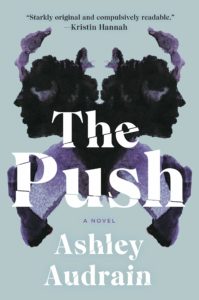
Ashley Audrain, The Push, Pamela Dorman (January 5)
In Ashley Audrain’s slow-burn suspense thriller about motherhood, Blythe Connor doesn’t have much of an idea of how things are supposed to go—after all, her own mother left when she was a young child. She’s determined to be the perfect mother she never had, but she can’t ignore the worries caused by her eldest’s many outbursts. Something seems off about the child, something that she’s never felt about her darling youngest. As her checked-out husband reassures her that everything is fine, Blythe becomes increasingly certain that it isn’t. –Molly Odintz, CrimeReads Senior Editor
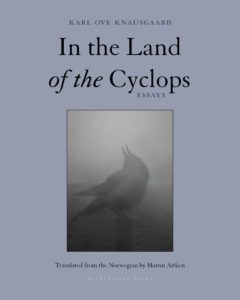
Karl Ove Knausgaard, tr. Martin Aitken, In the Land of the Cyclops, Archipelago (January 5)
In his first collection of essays to be published in English, literary phenomenon, destroyer of the novel, and describer of . . . everything, reflects on a wide range of topics, from Ingmar Bergman’s notebooks, to the Northern Lights, to Madame Bovary and Rembrandt. While none of Knausgaard’s other books have quite matched the hullabaloo that accompanied My Struggle’s publication, I think his small studies are beautifully poignant (I highly recommend his study of Edvard Munch and the autobiographical seasonal quartet) and I’m looking forward to this collection. –Emily Firetog, Deputy Editor

Chris Harding Thornton, Pickard County Atlas, MCD (January 5)
In the midst of a heat wave in 1978, the residents of Pickard County, Nebraska, are finding it hard to keep a cool head. When the family of a long-missing child decides to finally erect a headstone, it provides not comfort but catalyst to the townspeople, as long-simmering rivalries and resentments spark into full-size wars. Chris Harding Thornton has crafted a lyrical ode to a harsh landscape that deserves its place in the canon of rural noir. –MO
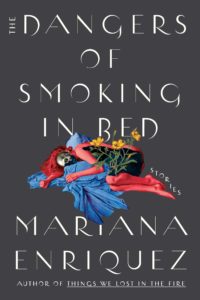
Mariana Enriquez, tr. Megan McDowell, The Dangers of Smoking In Bed, Hogarth Press (January 12)
A woman is a heartbeat fetishist; two rock fans rob their idol’s grave; a rotting child’s bones are excavated and reanimated. These stories are macabre and surreal, but not for nothing—they point at frightening, unspoken truths about illness, lust, and morality. As John Freeman put it, “No one writing today creates this smoke and this much fire from such small spaces.” –Walker Caplan, Staff Writer
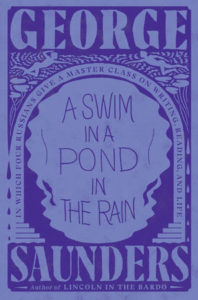
George Saunders, A Swim in a Pond in the Rain, Random House (January 12)
Consider this a class in a box—a book-shaped box, obviously. In it, Saunders, who teaches at Syracuse University’s MFA program, unpacks seven stories by 19th-century Russians (Chekhov, Turgenev, Tolstoy, and Gogol) that all lend themselves toward thinking about the short story form, and, not to put too fine a point on it, toward writing your own short stories (there are also a few exercises within). Saunders writes in the introduction: “The main thing I want us to be asking together is: What did we feel and where did we feel it?” Which makes it a book for readers as well as a book for writers. –ET

Marcos Gonsalez, Pedro’s Theory: Reimagining the Promised Land, Melville House (January 12)
Marcos Gonsalez’s writing bridges history, the present day, and the world of the imagination to bring us the stories of many Pedros—their dreams, goals, and daily lives—and their individual journeys toward fulfillment as they navigate life in America. Told through “reminiscences, speculations, and reckonings,” this is an unforgettable book from an extraordinary writer. –CS
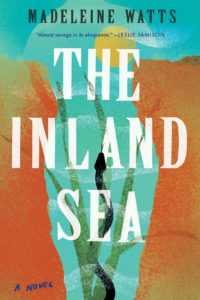
Madeleine Watts, The Inland Sea, Catapult (January 12)
The unnamed narrator in this novel works at an emergency call center in Australia (the equivalent of 911), letting the tragedies of her fellow humans, and her dying planet, wash over her, while subjecting her own body to more and more dangers. Kirkus called it “magnificently uncomfortable,” which is exactly what I like in a novel. –ET
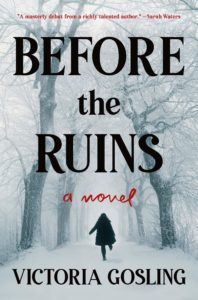
Victoria Gosling, Before the Ruins, Henry Holt (January 12)
Gosling’s atmospheric thriller is centered on a fabulous, abandoned estate, where four strangers on the cusp of adulthood once spent a magical summer exploring, bonding, and playing increasingly dangerous games. Decades later, one is missing, and the others must reopen old wounds in order to track down their errant friend. Gosling uses her richly ruinous setting as a jumping off point to examine class, innocence, morality, and loss. –MO

Olga Grushin, The Charmed Wife, Putnam (January 12)
I’m always here for twisted literary retellings of classic fairy tales—in this one, Cinderella is thirteen and a half years into her marriage to Prince Charming, and feels the need to seek the help of the local witch to fix what’s gone wrong. . . that is, she wants to kill him. Sign me up, baby. –ET

Kevin Barry, That Old Country Music, Doubleday
(January 12)
There are no bad Kevin Barry books. There are no sedate Kevin Barry books. Every darkly-soulful tragicomedy he produces—be it a novel or a short story collection—is a wild, electrified beast of language that throws you up on its back as it dances with manic glee around the lonesome, haunted west of Ireland landscape. Having said all that, Barry’s latest collection is (at times) a somewhat quieter affair—a touch sweeter and more melancholic in tone—but the stories in That Old Country Music have all the hypnotic pathos and inimitable linguistic verve of Barry at his very best. –DS
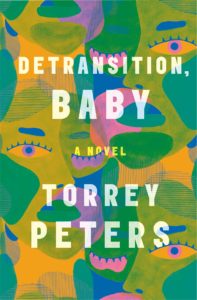
Torrey Peters, Detransition, Baby, One World (January 12)
Detransition, Baby is basically about a love triangle, only there’s nothing basic about it: Reese and Amy are two trans women in love, until Amy detransitions, becomes Ames, and starts sleeping with his boss, Katrina—who soon reveals she’s pregnant. Andrea Lawlor called it “an unforgettable portrait of three women, trans and cis, who wrestle with questions of motherhood and family making.” It’s also definitely one of the most hyped debuts of the season (Peters is the author of two previous novellas, but this is her first novel); I can’t wait to see how it all turns out. –ET

Andrea Pitzer, Icebound: Shipwrecked at the Edge of the World, Scribner (January 12)
After doing the research for her last book, One Long Night: A Global History of Concentration Camps, one assumes that Andrea Pitzer needed to decompress a bit with the next one, which is probably why she decided to write a history of a late 17th-century polar explorer whose inability to find the North Pole was matched by his crew’s inability to take down a polar bear (at least, with their first shot). While most of the recent wave of polar exploration sagas have focused on later, and much better-equipped, expeditions, Pitzer goes further into the history of seafaring, taking us on a journey with Dutch merchant Barents and his crew as they set out ill-prepared for any of their three voyages, and end up shipwrecked for an entire winter on their third. I devoured this book over a snowy weekend, as should everyone! –MO
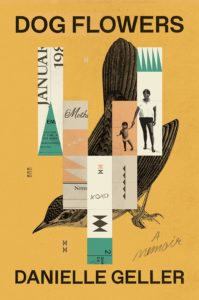
Danielle Geller, Dog Flowers, One World (January 12)
I’ve loved every essay I’ve read from Danielle Geller, so I was thrilled when I learned that she’s publishing a memoir this year. Described as a “photo-lingual” work, it archives her mother’s belongings in an effort to understand her relationship to the Navajo reservation and the choices that both mother and daughter made—sometimes with no other options—as they grew up amid poverty, colonization, and a complex family history. –Eliza Smith, Audience Development Editor
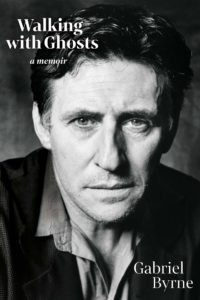
Gabriel Byrne, Walking with Ghosts, Grove (January 12)
The first memoir in a quarter century from the iconic Irish actor and star of star of Miller’s Crossing, The Usual Suspects, and HBO’s In Treatment, Walking with Ghosts is the story of Byrne’s working-class boyhood in 1950s and 60s Dublin, his battles with alcoholism and depression, his abuse at the hands of the Catholic Church, and his reflections on Hollywood stardom. It’s an extraordinary book—poetic and unflinching, deeply sorrowful but also alive with great wit and tenderness. As far from the paint-by-numbers movie star memoir as you could possibly imagine. –DS
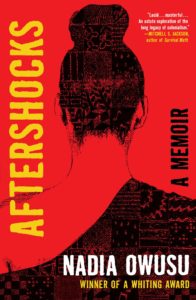
Nadia Owusu, Aftershocks, Simon & Schuster (January 12)
I can’t begin to tell you how excited I am for this book. Owusu, a 2019 Whiting Award winner, has written a memoir about her nomadic childhood and the years she spent grappling with uncertainty, the loss of her father, and her identity as a young woman. Aftershocks is deeply intimate, heartbreakingly honest, and a book that will likely reverberate throughout our hearts and minds long after we’ve finished reading. –RS
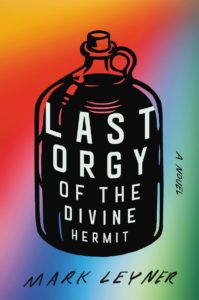
Mark Leyner, Last Orgy of the Divine Hermit, Little, Brown (January 19)
Even the elevator pitch of Last Orgy is mind-bending. An optometrist’s patient reads an eye exam chart featuring an anthropologist’s ethnography of the Chalazian Children’s Theater, which details a night out drinking with his daughter at Chalazia’s #1 spoken-word karaoke bar, where patrons perform spoken-word karaoke based on the Chalazian folktale of . . . a drunken father who hints to his daughter that he is dying . . . by telling a story of a father talking to his daughter . . . which the anthropologist and his daughter then perform. Best to experience it ourselves; Publishers Weekly calls it “an exhilarating and grotesque fever dream,” and I’m excited for the ride. –WC

Richard Bradford, Devils, Lusts and Strange Desires: The Life of Patricia Highsmith, Bloomsbury (January 19)
Richard Bradford’s new work about Patricia Highsmith isn’t a straightforward biography, but rather a literary exploration of Highsmith’s many destructive affairs and the influence they had on her dark classics. I’m sure this isn’t news to the folks reading this blurb, but Patricia Highsmith was a psychopathic, racist, antisemitic, alcoholic misanthropist who preferred snails to people, slept with seemingly every artistic lesbian of the 20th century, and vacillated between idolizing her partners and bringing them close to suicide. Also, she played a drinking game at Yaddo with Chester Himes and a British poet that involved consuming over ten martinis in a single night. Damn, Patricia. –MO
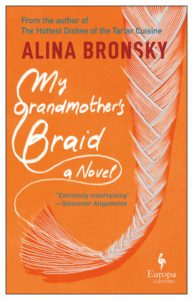
Alina Bronsky, tr. Tim Mohr, My Grandmother’s Braid, Europa (January 19)
A week doesn’t pass when I don’t think at least once about Alina Bronsky’s savage, hilarious 2011 novel The Hottest Dishes of the Tartar Cuisine, so I’m here for anything new she writes. She is at her best when evoking family dysfunction and powerful, mean old women, and both aspects are promised here, as we meet Max, who lives with his grandmother—a former Russian primadonna with a bad attitude—and his grandfather—who is clearly in love with their neighbor, soon to have a baby who looks just like him—in Germany. Sounds like a riot, as ever. –ET

Ellie Eaton, The Divines, William Morrow (January 19)
Eaton’s debut combines three of my favorite things—boarding school, “vicious” teenage girls, and long-buried secrets that haunt for years—in a literary novel that comes studded with blurbs from writers like Sarah Perry, Rufi Thorpe, and Kimberly King Parsons. So yes, it may be unbearably on brand for me, but that doesn’t mean I anticipate it any less. –ET
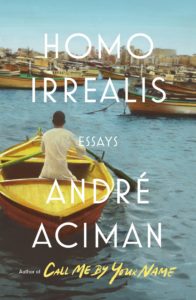
André Aciman, Homo Irrealis: Essays, FSG (January 19)
Aciman’s latest essay collection is a must-read before you cozy up again to Call Me By Your Name. Homo Irrealis offers meditations on the creative mind, time, and what it means for artists to grapple with the “here and now.” From the subway to empty Italian streets, Aciman reflects on the power of imagination on our memories and how we move through the world. –RS
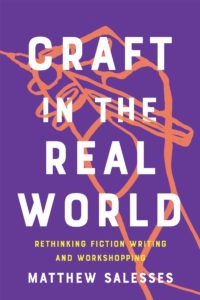
Matthew Salesses, Craft in the Real World: Rethinking Fiction Writing and Workshopping, Catapult (January 19)
This is one of those books you hear about and wonder how we’ve lived so long without it. Required reading for creative writing teachers (and, I imagine, affirmative reading for those who have been personally or professionally hurt in whiteness-centered workshops), Matthew Salesses’s Craft in the Real World is an argument and a guide for upending the traditional workshop model and our conceptions of craft. –ES
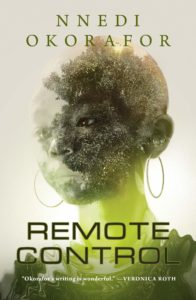
Nnedi Okorafor, Remote Control, Macmillan-Tor/Forge (January 19)
The Hugo-award winning author Okorafor is coming to us with a sci-fi novel about a young girl who turns into Death’s adopted daughter. She searches for meaning in the world and for the person she was before her transformation. Will she find what she’s looking for or ultimately succumb to the fate Death has in store? Let’s find out. –RS

Ladee Hubbard, The Rib King, Amistad (January 19)
I adored Ladee Hubbard’s The Talented Ribkins, which reinvents superpowers to be the cunning tools of the oppressed, merging trickster legends with modern superheroes. Now we get to read about the Ribkins’ controversial ancestor, The Rib King, who begins the book as a loyal servant to a down-at-the-heels white family, then morphs into the caricatured brand ambassador for a popular condiment, all the while seeking revenge against those who destroyed his Florida hometown. –MO
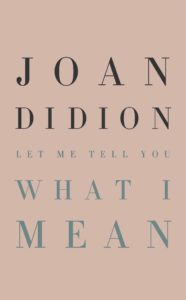
Joan Didion, Let Me Tell You What I Mean, Knopf (January 26)
If I’m being completely honest, Joan Didion could publish an anthology of her grocery store lists, and we’d still be interested. She’s our patron saint! What can I say?! Thankfully, Let Me Tell You What I Mean promises to be way more substantive than that: the twelve pieces collected here stretch back to her earlier days, giving us a glimpse into everything from WWII veterans reunions to Gamblers Anonymous meetings with her signature style and precision. Classic Joan. –Katie Yee, Book Marks Associate Editor
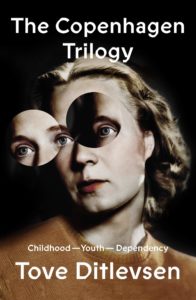
Tove Ditlevsen, tr. Tiina Nunnally and Michael Favala Goldman, The Copenhagen Trilogy, FSG (January 26)
These three slim novels, which are being published separately as well as collected into a single volume (the covers are so good that you probably need all four books), are variously described as “memoirs” and “autofiction,” but like most genre distinctions, it doesn’t matter in the least. Taken together, they tell the story of Ditlevsen’s ascent from frustrated child to frustrated writer to, in the third book, a woman frighteningly and overwhelmingly controlled by her addiction. The writing is cool and sometimes funny and strangely affecting, even at its plainest; you’ll speed through and then wonder what happened to you. –ET

Charles M. Blow, The Devil You Know: A Black Power Manifesto, Harper (January 26)
Honestly, Charles M. Blow deserves some kind of preemptive award for making it through 2020 without full-on strangling any number of his colleagues on the New York Times op-ed page (you know who I’m talking about). So it’s doubly impressive that he managed to write a book through it all (the “race book,” apparently, that he never really wanted to write). Framed as a manifesto, The Devil You Know is a call to Black political power that recognizes that the white political establishment, no matter how well intentioned, just isn’t going to fix the institutional white supremacy that has benefited them every minute of their lives. –Jonny Diamond, Editor in Chief
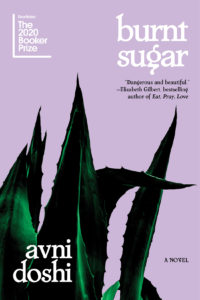
Avni Doshi, Burnt Sugar, Overlook Press (January 26)
In Doshi’s debut, shortlisted for the Booker Prize, an artist wonders whether her mother—only middle-aged—is going mad. This novel is as pleasurable as it is discomfiting; and as more truth spills out and as the family grows, things only get weirder and weirder. The whole book is caustic and heartbreaking in equal measure, but the last gesture is particularly unforgettable: a spiraling, feverish set piece that shook me to my core. A daring, excellent first novel. –ET
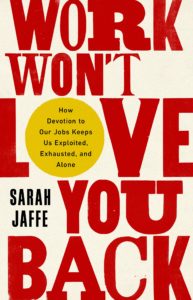
Sarah Jaffe, Work Won’t Love You Back: How Devotion to Our Jobs Keeps Us Exploited, Exhausted, and Alone, Bold Type Books (January 26)
“Do what you love” sounds like a great idea in theory; in practice, Sarah Jaffe argues, it’s an attitude that allows employers to continue exploiting workers while rendering the problems of capitalism invisible. This year made the already-clear flaws of our economic structures more obvious than ever and brought a new urgency to the long fight of labor protections; Jaffe’s book provides a welcome critique of what brought us here and ideas for how to move forward. –CS
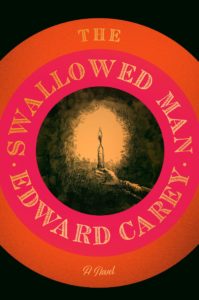
Edward Carey, The Swallowed Man, Riverhead (January 26)
Edward Carey and Elizabeth McCracken are Austin literary royalty, so it’s exciting that both have a new book out this year. Carey’s latest is a retelling of Pinocchio with a vast well of sympathy for the lying puppet’s lonesome and troubled creator, who spends much of The Swallowed Man contemplating his sins while in the belly of a whale. The Swallowed Man also has plenty of Carey’s trademark illustrations! –MO
FEBRUARY
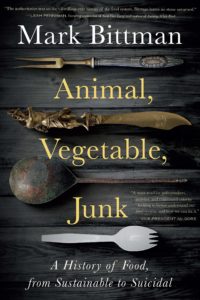
Mark Bittman, Animal, Vegetable, Junk: A History of Food, from Sustainable to Suicidal, HMH (February 2)
Having already published more than 20 books on food, cooking, and culture, Mark Bittman of The New York Times is back with the story of the human species through the lens of food and flavor. The many ways that human beings have obtained food, from hunting and gathering to agriculture and further technology, have shaped the course of history—this book argues that examining that history may hold lessons for our future, at a time when diminishing resources and climate change are ushering in a new era for our food systems. –CS
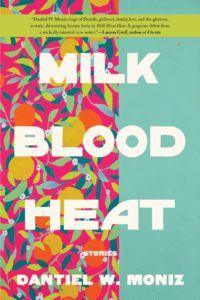
Dantiel W. Moniz, Milk Blood Heat, Grove Press (February 2)
In Moniz’s debut collection, girls seethe and women scorn in the houses and bars and schoolyards of Florida. In the first story, two girls mix their blood in milk and drink it to become sisters, and consider their options for death. In another, a mother works to earn back her daughter’s love after she breaks up their family, but settles for revenge instead. Every story in this book feels soaked with heat and blood and wanting and a slice—sometimes more—of danger. –ET
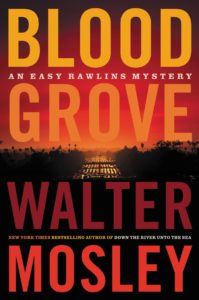
Walter Mosley, Blood Grove, Mulholland Books (February 2)
It is 1969, and we’re cruising along the fiery orange streets of California. No, unfortunately we are not time travelers. But we are (or will be!) readers of Mosley’s latest novel, which follows an iconic detective and his encounters with hippies, tycoons, sociopaths, cops, and grifters. It is a return to Mosley’s Easy Rawlins saga, and a novel that urges its readers to consider what it means to strive for justice, what it means to look at evil. –RS

Ben Okri, Prayer for the Living, Akashic (February 2)
The author of the highly-acclaimed The Famished Road, which won the 1991 Man Booker Prize, returns with a collection of short stories that meditates on the possibility of parallel realities, straddling the mundane and the surreal. Kirkus described the book as “mind-bending and provocative.” –RS
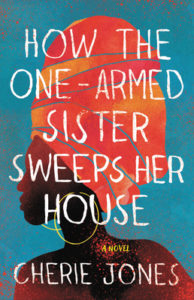
Cherie Jones, How the One-Armed Sister Sweeps Her House, Little, Brown (February 2)
I mean, just the title alone makes this book worthy of anticipation. It comes from the story Lala’s grandmother tells her at home in Baxter’s Beach, Barbados, about what happens to girls who go where they shouldn’t. I’m already intrigued, but then there’s Bernardine Evaristo calling it “a hard-hitting and unflinching novel from a bold new writer who tackles head-on the brutal extremes of patriarchal abuse,” so it has quickly become a shoo-in. –ET
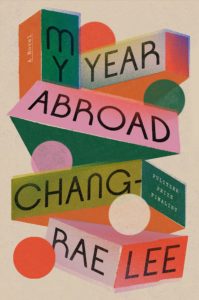
Chang-rae Lee, My Year Abroad, Riverhead (February 2)
I love Chang-rae Lee, not only because we share the same birthday but also because he has another novel coming out, and it is about a college student Tiller who suddenly gets folded into the life of Pong Lou, a Chinese American entrepreneur. Tiller follows Pong on a trip across Asia, which launches him into a world where he reconsiders everything anew and where we are left to ponder the longstanding effects of stereotypes, orientalism, capitalism, global trade, and mental health. It is a sweeping tale, one that will certainly sweep you off your feet. So, buckle in for the ride: we’re going on an adventure. –RS

Alison Wisdom, We Can Only Save Ourselves, Harper Perennial (February 2)
A captivating, unsettling novel about a teenage girl who seems to have everything—but who is lured away from it by a charismatic older man, and drawn into an exciting but dangerous lifestyle. Narrated by the mothers of Alice’s hometown, the vibe is The Virgin Suicides meets The Girls, and the ending will surprise you. –ET
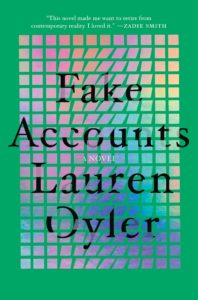
Lauren Oyler, Fake Accounts, Catapult (February 2)
As others have noted, it’s hard not to be interested in the debut novel by the (arguably) meanest reviewer in the literary landscape. Unfortunately for anyone seeking schadenfreude, or revenge, it is an absorbing, intelligent, charmingly meta novel about what it’s like to live right now, both on and off the internet. If it’s not autofiction, it seems like something very close to it, and there are certainly comparisons to be made to Ben Lerner here (he is even pointedly evoked in the novel’s early pages), but if Lerner’s Adam is the baseline, Oyler’s narrator tones down the pomposity and turns up the humor, as well as the emotional messiness. Ultimately, it’s a book about the layers of artifice inherent in getting up every morning, which is something we can all relate to. –ET
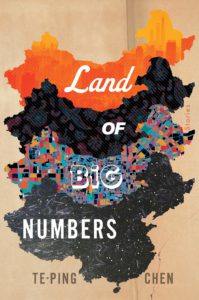
Te-Ping Chen, Land of Big Numbers, Houghton Mifflin (February 2)
This collection of stories has been heralded by this year’s National Book Award-winner, Charles Yu, as “immensely rewarding, from the first sentence to the last.” I trust him! In Land of Big Numbers, Te-Ping Chen takes us to China and introduces us to a lively cast of characters: a man trying his hand at the stock market, a stalker and his prey, a political activist, a professional gamer—we’re just getting started. As a former foreign correspondent, Te-Ping Chen is well acquainted with the geography of the place and the people, and her intimate knowledge is sure to shine through in this debut. –KY

Brontez Purnell, 100 Boyfriends, FSG Originals (February 2)
This book is, as the kids say, A Mood. First, there’s the dedication: “Fuck all y’all.” Then, the vignettes, which include boyfriends, tenderness, humor, despair, rage, grime, ecstasy. Justin Torres compared it to “a good lover, at turns vulgar and vulnerable, dirty and desperate, and always grinding toward magic.” That is, unlike anything you’ve read before, and just waiting to change you. –ET
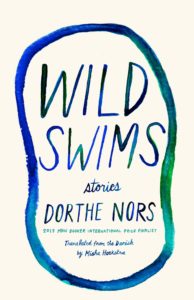
Dorthe Nors, tr. Misha Hoekstra, Wild Swims, Graywolf (February 2)
I’m a huge Dorthe Nors fan! If you are not, this surely means that you have not read her work, and in that case, I envy you because you have a joyful journey ahead. How do I describe the quiet brilliance that is Dorthe Nors? To say that she gets to the heart of human loneliness and desire is too cliche for the way she bends language. She is a master of tracking the hits and misses of human connection. If she were a surgeon, she would cut with the cleanest of lines. Have I convinced you? I highly recommend that you pause your scrolling of this list to read Karate Chop. And then Mirror, Shoulder, Signal. And then you should read So Much for That Winter, and hopefully by that point, her new collection of stories will be birthed into the world! –KY

Melissa Broder, Milk Fed, Scribner (February 2)
Melissa Broder fans, take heart! If you’ve been doom-scrolling through @sosadtoday all of quarantine, here is a reason to stop screaming into the void for a second. Yes, the wonderfully weird and erotic mind behind The Pisces is back with vengeance. Milk Fed tells the story of 24-year-old Rachel, lapsed in her Judaism, strict in her calorie-counting. And then she finds love (and maybe god?) in a frozen yogurt shop. Only Melissa Broder could dig into our obsessions, the ways our parents have ruined us, and blossoming queer love with such a bold panache. –KY
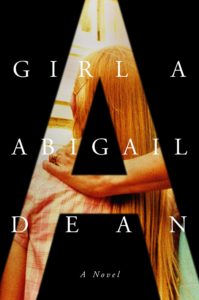
Abigail Dean, Girl A, Viking (February 2)
Abigail Dean’s intense debut begins with a settling of affairs: Dean’s central character, Lex Gracie, has been named as the executor of her mother’s will, and her new duties bring up some horrific childhood memories: she and her siblings grew up in a House of Horrors (based loosely on the Turpin Family), where they were chained to their beds and starved until Lex was able to escape and rescue the others. In order to settle her mother’s affairs, Lex must reconnect with her brothers and sisters, who are all dealing with long-term traumas and deep-seated resentments of their own, as the world outside continues to exploit them for their memories. –MO
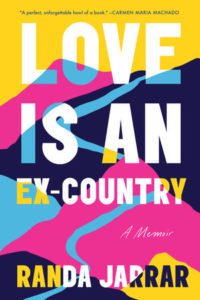
Randa Jarrar, Love Is An Ex-Country, Catapult (February 2)
After publishing a novel and a collection of short stories, Jarrar brings us a memoir about her cross-country road trip, in which she maps out what it means to claim joy in a hostile America. She has been described as a “fearless voice of dissent” and offers an unflinching perspective on domestic violence, single motherhood, and sexuality through her intersecting identities—queer, Muslim, fat, Arab American. Carmen Maria Machado described Love is an Ex-Country as “a perfect, unforgettable howl of a book.” –RS

David Duchovny, Truly Like Lightning, FSG (February 2)
Guffaw if you must, but having begun his literary fiction career with the, eh, singular barnyard fable Holy Cow: A Modern-Day Dairy Tale, Duchovny the writer has actually gone from strength to strength, with each new novel receiving markedly better reviews than the last. 2018’s New York-set supernatural love story, Miss Subways, was called “a witty and profound showstopper” by the San Francisco Chronicle and “a spooky domestic drama that is equal parts Nick Hornby and Neil Gaiman.” Duchovny’s latest is the tale of a former Hollywood stuntman and converted Mormon who has been peacefully homesteading in the California desert (with his three wives and ten children, of course) when a young developer with a dangerous ultimatum appears to upend his tranquil new life. Will Truly Like Lightning be any good? I want to believe. –DS

Olga Tokarczuk, tr. Antonia Lloyd-Jones, ill. Joanna Concejo, The Lost Soul, Seven Stories (February 2)
“Once upon a time there was a man who worked very hard and very quickly, and who had left his soul far behind him long ago. In fact his life was all right without his soul––he slept, ate, worked, drove a car and even played tennis. But sometimes he felt as if the world around him were flat, as if he were moving across a smooth page in a math book that was covered in evenly spaced squares…” Nobel Prize-winning Polish novelist Olga Tokarczuk is one of the most brilliant novelists writing today, and the idea that she has written a book that’s possible to read to my kids (with pictures!) fills me with immense joy. –EF
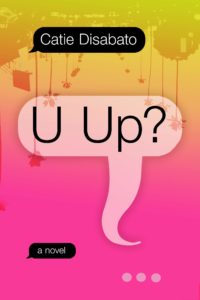
Catie Disabato, U Up?, Melville House (February 2)
I adored Catie Disabato’s wildly playful debut The Ghost Network, detailing a fan’s obsessive quest to locate a missing pop star named Molly Metropolis, rumored to have vanished into a lost section of the Chicago train system, and I had a lot of fun drawing the eye from the cover on a staff selection. Now, I’m close to finishing U Up?, her ice-cold sophomore novel of love and loss in LA, and I’m rather annoyed at having to stop reading it to write this blurb. In U Up?, the Very Online and very traumatized Eve can see ghosts, and one of them—her best friend, Miggy—keeps up from the other side by texting. A lot. Eve’s other best friend is missing on the anniversary of Miggy’s death, and Eve must confront her fears, her ex-girlfriends, and many, many ghosts, as she winds through the vibrant LA queer scene, refreshing her Instagram and delving deep into her soul in search of a terrible truth. –MO
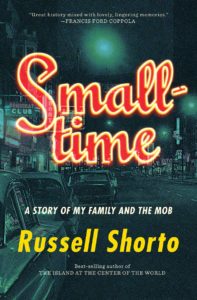
Russell Shorto, Smalltime: A Story of My Family and the Mob, Norton (February 2)
Growing up, Russell Shorto knew he was named for Russ Shorto, a mobster who ran a small criminal empire in Johnstown, Pennsylvania, but it wasn’t until recently that he started to get curious enough to look into the matter. Smalltime promises to be a lively journey into the illicit pastimes of factory towns in decades gone by, and the charismatic leaders of the underworld who lived to provide such entertainment. –MO

Ibram X. Kendi and Keisha N. Blain, eds., Four Hundred Souls: A Community History of African America, 1619-2019, One World (February 2)
To create this “community history” of 400 of African Americans, editors Kendi and Blain called on 90 different writers, each of whom took on 5 years in this epic story. As the publisher explains: “The writers explore their periods through a variety of techniques: historical essays, short stories, personal vignettes, and fiery polemics. They approach history from various perspectives: through the eyes of towering historical icons or the untold stories of ordinary people; through places, laws, and objects. While themes of resistance and struggle, of hope and reinvention, course through the book, this collection of diverse pieces from ninety different minds, reflecting ninety different perspectives, fundamentally deconstructs the idea that Africans in America are a monolith—instead it unlocks the startling range of experiences and ideas that have always existed within the community of Blackness.” This volume is exciting in both content and form: it is a story we need, told in a brand new way. –ET

Yusef Komunyakaa, Everyday Mojo Songs of Earth: New and Selected Poems, 2001-2021, FSG (February 2)
Yusef Komunyakaa’s poems reveal a unique understanding of the landscape of morality and justice in America; this collection brings together some of his most essential from the last two decades, a gift for both fans and newcomers alike. The result is a well-deserved testament to the power and weight of his work. –CS
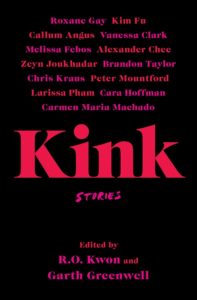
R.O. Kwon and Garth Greenwell, eds., Kink, Simon & Schuster (February 9)
The Bad Sex Awards were canceled this year, but the shame and fear around writing sex still lingers: how do you write the illogical logic of desire accurately, meaningfully, without being—God forbid—weird? This anthology shows us how, assembling stories about love and lust from a powerhouse lineup that includes Alexander Chee, Roxane Gay, Chris Kraus, Carmen Maria Machado, Larissa Pham, and Brandon Taylor. Edited by two writers whose work takes sex seriously, Kink makes a case for sex’s place in literary fiction. –WC

Robbie Arnott, The Rain Heron, FSG Originals (February 9)
It’d be hard for me to come up with a more compelling premise for a novel that I want to read RIGHT NOW: a solitary protagonist living on the frontiers of a failed state survives in the wilds by fishing and hunting until—uh oh—drama comes to the mountain forests in the guise of soldiers in search of the titular animal, which may or may not be magical; a quest ensues. This is young Australian novelist Robbie Arnott’s second novel and yes, I am eager to read it. –JD
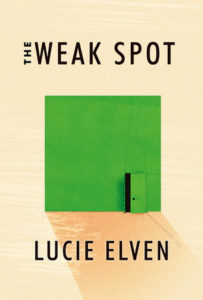
Lucie Elven, The Weak Spot, Soft Skull (February 9)
You might say there’s something eerily prescient about a surreal story housed at a pharmacy. Pandemic aside, there is a kind of magic all-knowingness to Lucie Elven’s writing. The Weak Spot takes us to the heart of a village where a young woman comes to apprentice at a pharmacy and loses herself in the ailments—and other aches, pains, and worries—of the townspeople. (I’m guessing if you liked Sue Rainsford’s Follow Me To Ground, you will love this.) This fable-like tale just might be the anecdote you need these days. –KY

Jen Silverman, We Play Ourselves, Random House (February 9)
In Silverman’s debut novel, Cass is a rising star on the New York theater scene—until she pokes her rival in the eye and winds up ostracized all the way to the West Coast. There she meets a filmmaker constantly flanked by teenage girls, the stars of her quasi-documentary. This is a novel about what it might really mean to be an art monster. Or at least a monster who makes art. –ET
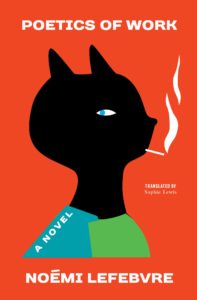
Noémi Lefebvre, tr. Sophie Lewis, Poetics of Work, Transit Books (February 9)
This novel begins in a place that is all-too-relatable: protesters and police are fighting it out in the streets, and a poet is unable to find a job. Naturally, the poet smokes a ton of weed and turns their attention to accounts of living under Nazi occupation. Poetics of Work promises to be a wise and wonderful satire of nationalism, capitalism, gender, and the language that we use to talk about these things. –KY

Elvira Navarro, tr. Christina Macsweeney, Rabbit Island, Two Lines Press (February 9)
Think of something weird. And then think of something weird to happen to that something weird. And now put a jaunty hat on it. You didn’t even come close to the satisfyingly off-kilter stories that await you in Rabbit Island. These stories feature maddening experiments on isolated islands, floating grandmothers, extinct (?) creatures, and things growing out of people’s body parts that should absolutely not be growing there! To read this collection is to become, for a brief moment, a visitor of said isolated island. Elvira Navarro’s prose, beautifully translated by Christina Macsweeney, is transportative. –KY
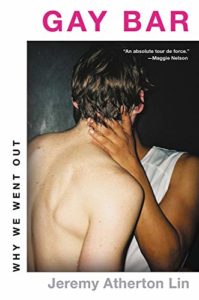
Jeremy Atherton Lin, Gay Bar: Why We Went Out, Little Brown (February 9)
The coronavirus pandemic has threatened the existence of so much of the restaurant and nightlife industry, but one corner of it is particularly vulnerable—the gay and lesbian bars that have been essential community spaces for decades—and this year has brought renewed calls to support them, from The Lesbian Bar Project and others. Jeremy Atherton Lin’s Gay Bar comes at a particularly good time to reflect on these spaces; his exploration of their history and mythology, interspersed with stories of his own many nights out, is also a reminder of how important it is that these bars survive. –CS

Elizabeth Knox, The Absolute Book, Viking (February 9)
Like everyone else who reads about books on the internet, I’ve been anticipating this book since Dan Kois wrote about it last January. “The experience of reading the New Zealand writer Elizabeth Knox’s contemporary fantasy novel The Absolute Book reminded me of how I felt reading Jonathan Strange and Mr. Norrell or The Left Hand of Darkness or His Dark Materials or, to move out of genre, Life After Life or The Underground Railroad,” he wrote. “I felt that my position in relation to the book’s capacious intellect and imagination and moral purpose was a vertiginous one. It was thrilling and frightening, reading this book.” My word, is that a good recommendation. Obviously, it has since gotten itself a publishing deal, and soon, it will be in my brain. –ET

Vendela Vida, We Run the Tides, Ecco (February 9)
If you can’t get enough ’80s nostalgia (and I count myself among you), Vendela Vida’s latest will scratch that itch. In this tense story of teen female friendship and betrayal in the pre–tech bro years of San Francisco, BFFs Eulabee and Maria Fabiola have a dramatic falling out that’s followed by Maria Fabiola’s disappearance. Early readers have been responding with ALL CAPS–level excitement; my curiosity is suitably piqued. –ES
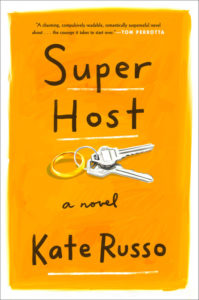
Kate Russo, Super Host, Putnam (February 9)
Funny, sharp, and artistic—like Russo herself—this debut novel follows Bennett Driscoll, an artist in the periphery of his own once-successful career and marriage, who, for cash, rents his London residence on “AirBed” a vacation rental site. Now, instead of looking for reviews of his art, he stalks AirBed reviews that a cast of characters leaves in their wake. Underneath lurks the question some contemporary artists and writers ask themselves: if I am not discussed, do I exist? Bennett’s fall from art society grace unravels as he finds himself on the periphery of his own home, on the outside looking in to many things beyond his kitchen. What purpose has he then? Is painting vegetables as meaningful as painting nudes? A wonderful book flanked with irony, perversity, Rear Window voyeurism, and women who understand the task of reinvention, Super Host is a case study of what we talk about when we talk about success. –Kerri Arsenault, Contributing Editor
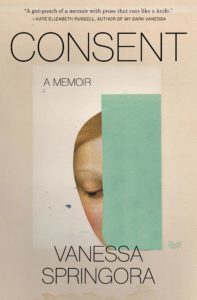
Vanessa Springora, tr. Natasha Lehrer, Consent, HarperVia (February 16)
Last year, Julliard Publishing director Vanessa Springora sparked conversations across France when she detailed being groomed as a 14-year-old by the writer Gabriel Matzneff in her memoir Les Consentement. The memoir both indicts the literary world that allowed rampant child abuse to occur in public, and meditates on love, consent, and healing. Now, we’re able to read it in English, and we’re better for it. –WC
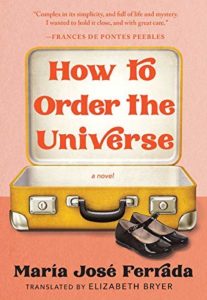
María José Ferrada, tr. Elizabeth Bryer, How to Order the Universe, Tin House (February 16)
I don’t want to say too much about this tiny novel—a one-sitting read if ever there was one—but it concerns M, a 7-year-old girl, who tags along with her father, D, a traveling salesman. Of course, things are about to change in this funny, resonant little book. –ET

Henry Louis Gates Jr., The Black Church, Penguin Press (February 16)
We wouldn’t normally recommend the companion book to a PBS show, but when the documentary in question is produced, hosted, and written by Henry Louis Gates Jr., exceptions can be made. The story of the Black church in America, while centered in a deep and resilient faith, is also one of justice, struggle, and survival. Gates Jr. surveys 400 years of worship and endurance, mapping through song and story the long difficult journey from slavery to Reconstruction, from Jim Crow to the civil rights movement, all the way to a tumultuous present in which justice is no less urgent and holy a calling. –JD
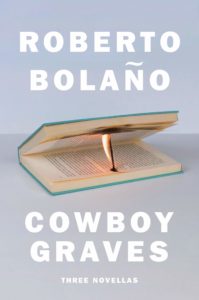
Roberto Bolaño, tr. Natasha Wimmer, Cowboy Graves: Three Novellas, Penguin Press, (February 16)
I must, shamefully, confess my lateness to the raucous Bolaño party, having picked up one of his books for the very first time at the beginning of the pandemic. Unsurprisingly, I’m now completely obsessed, and am greedily working my way through the late Chilean’s prodigious back catalog. Cowboy Graves—which must surely be in contention for both the best book title and the best book cover of 2021— is a collection of three dark and uncanny tales, thematically linked around political upheaval. As I now know, any newly-translated Bolaño work is a cause for celebration, and I am itching to get my hands on this one. –DS
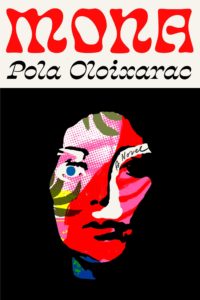
Pola Oloixarac, tr. Adam Morris, Mona, FSG (February 16)
I’ve been hearing very good things about this novel, Oloixarac’s third, in which a Peruvian writer gives up California for Sweden, where she has been nominated for a prestigious prize, and which apparently has a good deal of fun at the expense of “the contemporary literary culture.” Also, not for nothing, I have received a tip that this novel includes a mention of Lit Hub, which may be the first time this website has appeared in a novel. Just a little something extra to anticipate. –ET
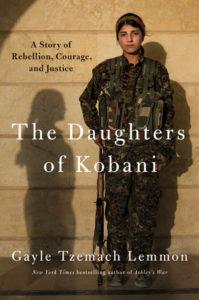
Gayle Tzemach Lemmon, The Daughters of Kobani: A Story of Rebellion, Courage, and Justice, Penguin Press (February 16)
Gayle Tzemach Lemmon’s reporting on foreign policy, gender, and economics has brought her across the globe and produced a remarkable body of work that includes her previous books, Ashley’s War: The Untold Story of a Team of Women Soldiers on the Special Ops Battlefield (2015) and The Dressmaker of Khair Khana (2011). Now, she turns her attention to a group of extraordinary women: the all-female militia that took on the Islamic State in the town of Kobani in northeastern Syria. Lemmon has an eye for the stories of exceptional women who use their ingenuity, strength, and grace in impossible circumstances, and this book is sure to show her reporting at its best. –CS

Brandon Hobson, The Removed, Ecco (February 16)
From the National Book Awards finalist comes a novel about a family reckoning with the tragic death of their beloved son. Drawing from Cherokee folklore, Hobson mines the lasting effects of trauma and grief, showcasing the quietly divergent paths of each family member—one struggling to manage a husband’s Alzheimers, another filling solitude with romantic fancies, and the other slipping into addiction. Here, we are witnesses to mourning. Here, we sit with the power and strength of personal and ancestral stories. –RS
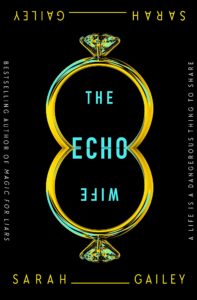
Sarah Gailey, The Echo Wife, Tor (February 16)
Sarah Gailey’s The Echo Wife is SO GOOD. Like, I don’t know the last time I read anything this well plotted. In The Echo Wife, a scientist renowned for her skills in cloning finds out her husband has been cheating on her—with her clone. When the clone kills the husband, the scientist has to cover it up, or else the investigation might ruin her reputation and cause the community to question the efficacy of her research. She’s also got a certain level of sympathy for her genetic twin; her husband’s clumsy attempt to grow the perfect wife hobbled his creation and made her miserable. Innumerable plot twists ensue, leading to a perfect set-piece of an ending. –MO
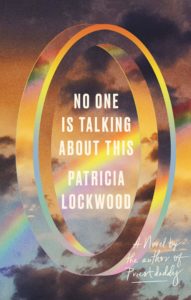
Patricia Lockwood, No One Is Talking About This, Riverhead (February 16)
The first half of the first novel by Lockwood—poet, memoirist, and chaotic-neutral Twitter personality—reads like a history of Being Online from the last five years. “Cat Person” is mentioned. The random time “This is Just To Say” became a meme is in there. Your reaction to this section will depend on your reaction to Twitter, at large, because this is as close as I’ve ever seen a book get to recreating the way the internet—mindless absurdity, stuff about butts, random profundity—feels. The second section, however, takes a turn, and you realize that recreating all that inanity had a point: to be held up against real, terrible, heartrending life. –ET
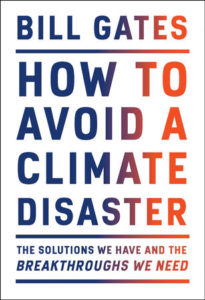
Bill Gates, How to Avoid a Climate Disaster, Knopf (February 16)
Generally speaking, I don’t want to hear a billionaire talk about anything unless it’s why he has decided to give away all, and I mean all, of his money and live penitently in the woods for the remainder of his days. There should be no billionaires, and if you are one, well, you are probably bad. Sorry, that’s just how it is. Having said all that, Bill Gates seems like a decent skin (his herculean philanthropic efforts over the past twenty years are nothing to be sneezed at) and his new book, if it lives up to its billing, is certainly something we could do with right now. A plan for how the world can get to zero greenhouse gas emissions in time to avoid a climate catastrophe, let’s hope How to Avoid a Climate Disaster can provide some of the direction we so desperately need. –DS

Honor Moore and Alix Kates Shulman, eds., Women’s Liberation!: Feminist Writings that Inspired a Revolution and Still Can, Library of America (February 16)
It’s hard to remember, especially if you weren’t yet born, about the rights women have not always enjoyed, the laws that undervalued women, or the cultural mores that subordinated us. I was born, grew up, and came of age in the tumultuous times this anthology covers (1960s-1990s) and these writings became foundational for me and millions of other women: Simone de Beauvoir, Kate Millet, Audre Lorde, Susan Brownmiller, Maxine Hong Kingston, bell hooks, (to name a few) and their texts about abortion, pornography, birth control, sexuality, identity, family, sexual harassment, the erotic, sisterhood, date rape, race, and a constellation of social justice issues precipitated a future more appealing than our past. It was here, within these ninety(ish) pieces, women began to subvert their position as Other through writing, meaning other than the default: men. Shulman and Moore have also been activists and participants in the feminist movement from the start, and created feminist literature themselves. Ordered chronologically, these pieces smartly convey the movement’s development; it’s important to know from whence feminism came in order to know where we are going, and this anthology sculpts a path for that to happen. –KA
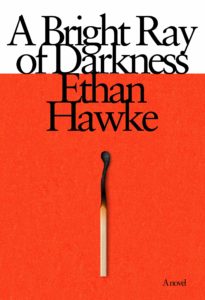
Ethan Hawke, A Bright Ray of Darkness, Random House (February 21)
I’ve made, and will continue to make, no secret of my love for Ethan Hawke’s myriad bookish ways. The four-time Oscar nominee’s literary bonafides are well-established at this point. We all know the man can write, just as we all know Gattaca is the greatest sci-fi movie of the last 25 years. I am not looking to debate these points, only to reiterate them. His latest novel, a fiery meditation on fame and celebrity, is the story of a tormented young actor making his Broadway debut in Henry IV just as his marriage is falling apart. I saw Ethan play Macbeth on Broadway a few years back, and he was superb, so I’m all-in on this. –DS

William J. Bernstein, The Delusions Of Crowds : Why People Go Mad in Groups, Atlantic Monthly (February 23)
I recently saw the moment we are living through described as the Era of QAnon and, frankly, I’m not happy about that. But if ever we needed a comprehensive history of mass delusion, from wildly irrational financial bubbles to unhinged End Times paranoia, it’s probably now. As Bernstein writes “We are the apes who tell stories. And no matter how misleading the narrative, if it is compelling enough it will nearly always trump the facts.” Sadly, he’s not wrong. I just hope we can fix it. –JD
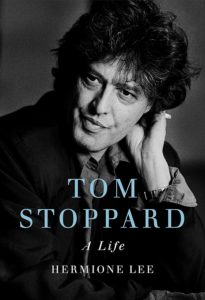
Hermione Lee, Tom Stoppard: A Life, Knopf (February 23)
Tom Stoppard himself asked biographer Hermione Lee to write his biography and provided her with troves of primary sources. From there, she’s carefully unspooled a narrative linking the writer’s life to his works: Arcadia! Shakespeare in Love! Rosencrantz and Guildenstern are Dead! The Real Inspector Hound! I’m not going to list any more because the guy is prolific! Kirkus called it “an authoritative and exhaustive . . . biographical masterpiece.” How can you argue with that? –WC
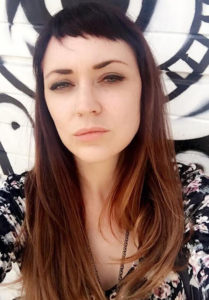
Elle Nash, Nudes, SF/LD Books (February)
Animals Eat Each Other author Elle Nash has always been good at mapping the particulars of unspoken desire; and her recent story “Cat World,” in Guernica, nails the tangle of selfhood created by the Internet. The title of her new story collection—Nudes—promises both. –WC
MARCH

Sara Davis, The Scapegoat, FSG (March 2)
In Sara Davis’s debut novel, N investigates the circumstances of his father’s death, which leads him to a mysterious hotel built over a former Spanish mission. As he untangles the mystery, he begins hallucinating about his past—and worrying if he’s playing into the hands of a larger conspiracy. Sounds spooky and compelling; and if it’s half as good as Davis’s LARB essay on the TV show Laguna Beach, count me in. –WC
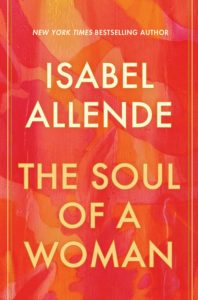
Isabel Allende, The Soul of a Woman, Ballantine (March 2)
In The Soul of a Woman, Isabel Allende has told a deeply personal story of family trauma, her relationship with her mother, and her own experiences with marriage. She has also managed to make this a bit of feminist theory, a study in the sacrifices women are forced to make and the evolving definitions of feminism. The bestselling author of A Long Petal of the Sea, Isabel Allende is a master at manipulating the microscopic lens and expanding our field of vision. –KY
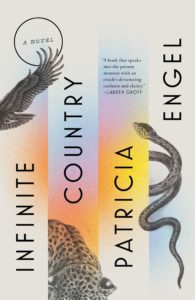
Patricia Engel, Infinite Country, Avid Reader Press / Simon & Schuster (March 2)
Mauro and Elena are a young Bogotá couple who move to the US with their firstborn at the turn of the Millennium, in search of better wages and a reprieve from the civil unrest back home. As their family grows, Mauro and Elena struggle to deal with the cruelty and xenophobia of post-9/11 American society, before Mauro’s deportation tears apart their already-fragile existence. Colombian-American author Engel—who won the Dayton Literary Peace Prize for her extraordinary 2016 novel, The Veins of the Ocean—has produced another gorgeous and devastating Pan-American story of exile, yearning, and loss. –DS
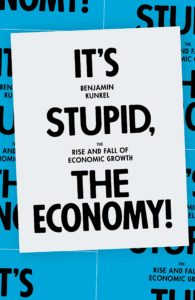
Benjamin Kunkel, It’s Stupid, the Economy! : The Rise and Fall of Economic Growth, Verso (March 2)
For anyone paying attention over, say, the last 30 years, the fact that the forever-growth at the heart of late capitalism is really bad for the planet (and the people who live on it! hi), is not news. And yet we still live at the behest of an entrenched political class that thinks we can grow our way clear of trouble. Enter novelist and critic Benjamin Kunkel who makes the case against growth, suggesting instead that we prioritize human beings and the environment over the endless quest for profits that never quite seem to trickle down. This is your ecosocialist, degrowth reader for 2021. –JD
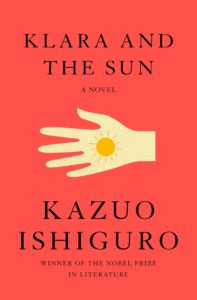
Kazuo Ishiguro, Klara and the Sun, Knopf (March 2)
If your favorite Ishiguro novel is Never Let Me Go, you must pick up the Nobel laureate’s latest, in which Klara, a solar powered Artificial Friend (AF) in a near-future world, tries to help a sick child by appealing to the sun to save her. (If your favorite Ishiguro novel is something else, well, you should probably pick it up anyway.) It’s clear that Ishiguro continues to be interested in the elusive nature of humanity, which persists in its unknowability despite all the ways we try to control, explain, or fabricate it. And if you think about it, that’s pretty much the reason any of us read fiction at all. –ET
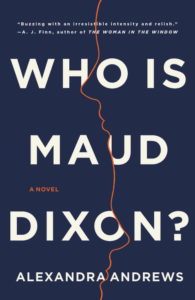
Alexandra Andrews, Who is Maude Dixon?, Little, Brown (March 2)
In Alexandra Andrews’s biting debut, full of the kinds of names that should appear in fiction, young publishing assistant Florence blows up her career after her boss sleeps with her, and finds a tentative lifeline with a new job as the assistant to the mysterious Helen, who took the literary world by storm under the pseudonym Maude Dixon, but who is now struggling to complete her next novel. The two head to Morocco for a research trip, but after a deadly car crash, only one wakes up in the hospital. Is she Maude Dixon, or is she about to become Maude Dixon? –MO
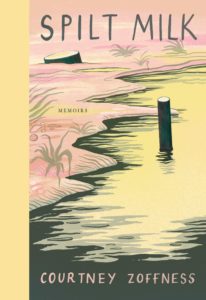
Courtney Zoffness, Spilt Milk: Memoirs, McSweeney’s (March 2)
Look, there are blurbs, and there are blurbs. This book, Zoffness’s literary debut (though she has been on the scene for some time), has blurbs from Mary Gaitskill, T Kira Madden, Tiphanie Yanique, and Ben Marcus, among others, including Mat Johnson, who wrote “There is so much I want to say about Spilt Milk, but honestly they’re all variations of This is fucking brilliant. Whatever you think this book is, it’s more.” Okay then! –ET
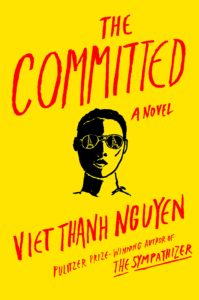
Viet Thanh Nguyen, The Committed, Grove Press (March 2)
The much-anticipated sequel to 2016’s Pulitzer Prize-winning The Sympathizer, The Committed picks up the story of Nguyen’s anonymous north-Vietnamese protagonist, reeling from a brutal re-education at the hands of his ex-best friend, as he arrives in Paris as a refugee in the early 1980s and embarks on a new life as a drug dealer and hanger-on to a set of left-wing intellectuals. A master stylist with blistering intellect, Nguyen is capable of exploring big ideas at a page-turning pace. –EF
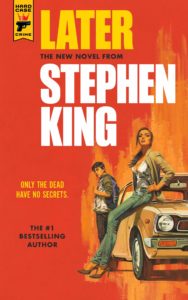
Stephen King, Later, Hard Case Crime (March 2)
As a kid growing up in the 70s, I wore out the ink on my Stephen King paperbacks (Carrie, Salem’s Lot, Night Shift), reading terrifying page after terrifying page with a flashlight under my bunkbed tent. King’s new novel, Later, has the tenor of such a book but grittier and crime-focused, as the pulpy cover suggests. Jamie Conklin, a teenage boy with a single mom, has “abilities” that could help others. But there’s a Faustian bargain in the mix. Does he help the NYPD or is there too much at stake? There’s also a novel within the novel that’s sure to add complexity to this connect-the-dots tale, but it’s also compassionate and tender, as any true Stephen King book tends to be; exploitation of that tenderness always contains the real horror or crime. He’s been cagey about the book’s details (there’s been mumblings about things coming from beyond the grave), which adds to the mystique, so naturally, you will find me in March, flashlight in hand. –KA
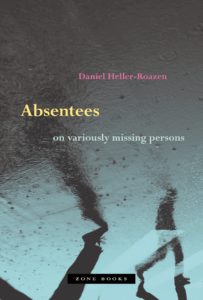
Daniel Heller-Roazen, Absentees: On Variously Missing Persons, Zone Books (March 9)
At the starting place of Princeton professor Daniel Heller-Roazen’s book Absentees is a question: How does a person cease being a person in our society? His inquiry, ambitious and interdisciplinary, raises a number of issues in the fields of philosophy, law, and history; he delves into various categories of nonpersons, from the dead to those who are excluded, disenfranchised, and otherwise disappeared from the world. –CS
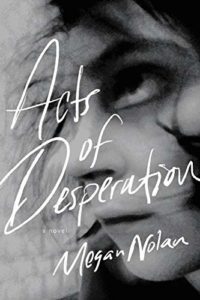
Megan Nolan, Acts of Desperation, Little, Brown (March 9)
Oh boy, do I love the sound of this debut, the story of an obsessive love affair described as “combining the intellectual excitement of Rachel Cusk with the emotional rawness of Elena Ferrante.” And if that wasn’t enough, well let’s say that Nolan’s recent essay about the joys of frivolous sex didn’t make me want to read her novel any less. –ET

Diane Wilson, The Seed Keeper, Milkweed (March 9)
Milkweed always seems to punch well above its indie press weight (two of my favorite books of the last few years have been Robin Wall Kimmerer’s Braiding Sweetgrass and Richard Wagamese’s Indian Horse) so I’m excited to get my hands on The Seed Keeper by Diane Wilson. The novel tells the story of Rosalie Iron Wing, a Dakota woman who, after surviving the foster care system to make a life of her own in the world, must confront the harsh realities—climate change, capitalism—of contemporary farming life. In looking to her past for answers Rosalie finds unexpected communion with her ancestors, the women—strong, resilient, proud—who made her who she is. –JD
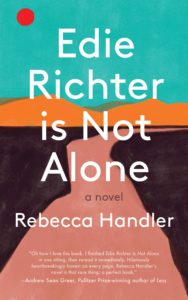
Rebecca Handler, Edie Richter is Not Alone, Unnamed Press (March 9)
Andrew Sean Greer described this debut, in which an acerbic Californian with a secret moves to Perth, Australia (but of course, cannot escape her past no matter how far she goes), as “that rare thing: a perfect book.” Perfect or not, with writing that has been compared to Mary Robison and Lorrie Moore, and a story about a woman confronting her own humanity, I’m excited to give it a shot. –ET
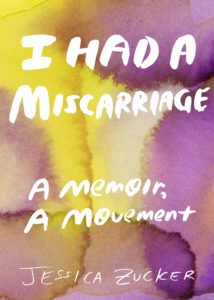
Jessica Zucker, I Had a Miscarriage: A Memoir, a Movement, Feminist Press (March 9)
Let’s talk about miscarriages. It’s estimated that one in every eight pregnancies results in a miscarriage. (This number is actually higher, as many women experience miscarriages before they even realize they’re pregnant.) And yet! Miscarriages are often considered an uncomfortable and taboo topic. Jessica Zucker’s memoir is a response to that, a bold first step in kicking down the stigma that surrounds this common event. There are a few things that make Jessica Zucker perfectly positioned to write this book: First off, she is a psychologist that specializes in reproductive health. Also, her second pregnancy was that one in eight. In I Had a Miscarriage, Jessica Zucker shares her expertise and her story, a melding of the theoretical and the personal that makes for a powerful feminist framework around this topic. –KY
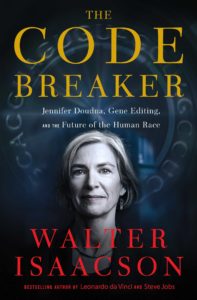
Walter Isaacson, The Code Breaker: Jennifer Doudna, Gene Editing, and the Future of the Human Race, Simon & Schuster (March 9)
The latest biography by the author of everyone’s favorite book of Job(s) introduces us to Nobel Prize-winner Jennifer Doudna, who, with her colleagues, invented CRISPR, something we would all do well to understand as we embark on the next decade. At the very least, it’s likely to be fascinating. –ET
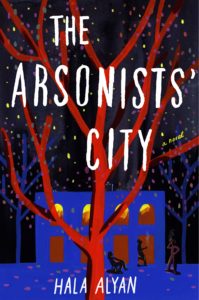
Hala Alyan, The Arsonists’ City, HMH (March 9)
Alyan, author of the award-winning Salt Houses, has written another family saga studded with the same beautiful lyricism. The Nasr family—a Syrian mother, a Lebanese father, and three American children—live a life of migration. But when Idris’s father dies and he decides to sell their ancestral home in Beirut, everyone unites against him in a fight to save the house revealing deep-seated secrets (shame, jealousies, and lost love; you know, the usual family drama). Luckily that also makes for great fiction. –EF
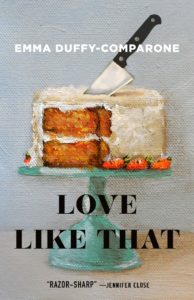
Emma Duffy-Comparone, Love Like That, Henry Holt (March 9)
The stories in this debut collection made me feel a little bit sick to my stomach—in that “I know her” way, or sometimes in that “I can’t believe this is happening” way, but always in that “I have to keep reading this” way. She particularly excels in first sentences, like “You know he has a kid, but right now it’s whatever.” Or “Her parents always said they’d dig their own graves if anything happened to their children, so when her sister Claire disappeared on a camping trip in the White Mountains, Elsie kept an eye on things.” Or “My fourth-grade teacher, Mrs. Finger, after escorting Paulie DiBona to the principal’s office for yelling that she had ass smell, dropped like forty sandbags into her rocking chair and announced that we were getting a paraprofessional.” See what I mean? –ET
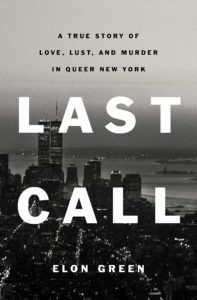
Elon Green, Last Call: A True Story of Love, Lust, and Queer New York, Celadon (March 9)
Elon Green’s Last Call is the most recent addition to a new wave of true crime exposing horrific violence committed against the LGBTQ community, the institutional indifference that allowed these crimes to continue, and the community activists who made sure these crimes got solved. Last Call follows activists and investigations as they attempt to track down a killer whose skillful dismemberment of his victims points to a medical background. Each victim had a complicated relationship with their identity, and each had been lured to their death by a charming predator based in a discrete piano bar. Elon Green paints a disturbing portrait of a decade—the 1990s—in which a community devastated by a plague simultaneously experienced a rise in hate crimes justified by the “gay panic” defense, and a scattershot police response to safety concerns. –MO

Semezdin Mehmedinović, tr. Celia Hawkesworth, My Heart, Catapult (March 9)
My Heart is an interrogation of a Bosnian past from a place of trauma and displacement, which parallels the turnstiles of love and family, themes and topics around which the book’s heart is centered. In one section, “Snowflake” (which was also excerpted in Freeman’s: Love), the narrator cares for his wife after a stroke strands them with only part of their memories together. How the couple navigates this gap is one of the most beautiful pieces of writing I have ever read. To be so loved and to have it so divinely expressed, feels both ecstatic and harrowing, like the delicacy of skim ice. I cried my head off. Two additional chapters comprise the rest of the book, both also following the cuticles of love, and how love both anchors and unmoors. There’s no other writer who conveys with such grace what can happen to the heart—physical, emotional, and in its memory. This will be one of the best books of 2021. –KA
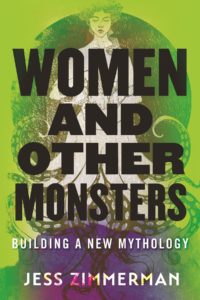
Jess Zimmerman, Women and Other Monsters: Building a New Mythology, Beacon (March 9)
Electric Lit editor-in-chief Jess Zimmerman offers up a rallying cry for women: to be hungry, feral, ambitious—in short, to be monstrous. Framing her manifesto through the stories of eleven female monsters from Greek mythology, Zimmerman demonstrates the agency and power of clawing through social constructions. Carmen Maria Machado calls it “muscular and dangerous,” and poised to become a feminist classic. –ES

Marguerite Duras, The Impudent Ones, New Press (March 9)
In this never-before-translated work, Duras explores familiar themes—alienation, forbidden love, and the slow dissolution of a family. In this case, the family rots away not in an imperial context, but in the sleepy French suburbs, where rumors travel fast and reputations take a lifetime to build, and an instant to destroy. I’m looking forward to savoring every word of Duras’s delicious sentences and immersing myself in the delicate atmosphere of mid-century suspicion and Faulkner-esque love triangles. –MO

Michelle Nijhuis, Beloved Beasts, W. W. Norton (March 9)
Look, I know I should be reading all the climate crisis books, but my cowardly heart is generally too overwhelmed to take my medicine. That’s why I’m looking forward to reading Beloved Beasts this year, which tells the (epic! dramatic!) story of the scientists, activists, and organizations who make up the modern conservation movement. I’m hoping to take heart—and also to educate myself on the racist and colonialist practices of conservationists, which journalist Michelle Nijhuis doesn’t paint over. –ES

Robert Alter, Nabokov and the Real World: Between Appreciation and Defense, Princeton University Press
(March 16)
Vladimir Nabokov is known for his dazzling prose style and complex literary games; all that artifice makes it easy to think of his works as literature for literature’s sake. But Nabokov’s work was fiercely concerned with morality, as was he in life. This essay collection assesses the stakes and real-world relevance of Nabokov’s writing, from his lectures and short stories to his major novels. It’s a great read if you’re a Nabokov fan, or if you’ve ever wondered, “Why did this guy write Lolita?” –WC
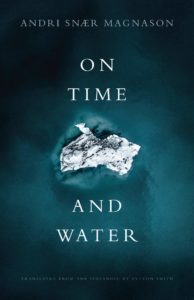
Andri Snær Magnason, tr. Lytton Smith, On Time and Water, Open Letter (March 16)
Like Iceland itself, a country of mythology and memory, this book explores the essence of time and how we need to adjust our sense of it and adjust our environmental storytelling if we are to make meaningful such terms as “climate change,” which is now moving faster than geologic time has historically allowed. Magnason writes at the human scale, however, incorporating family and love—and the historical reach of both—to craft an aperture in which we can view not just our past, but our future. Note: Magnason wrote a eulogy for Ok Glacier (Okjökull), the first glacier to be classified as dead. It’s one way to mark environmental time, as Magnason seeks to do. –KA
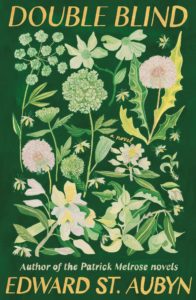
Edward St. Aubyn, Double Blind, FSG (March 16)
Arguably the greatest living English novelist never to have won the Booker Prize (not that he minds, necessarily; do you think he minds?), Edward St. Aubyn returns after a three-year hiatus with an urgent, polymathic work about the hunger for and fight to possess knowledge—for its own sake, as a sign of status, as an instrument of power. Well and rightfully known as a chillingly incisive portraitist of human monstrosity, St. Aubyn is still somehow underrated as a describer of tenderness and compassion. Philosophy, art, psychoanalysis, genetics, ecology—Double Blind has something to say about almost everything. –EF
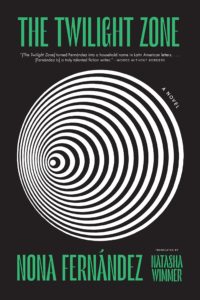
Nona Fernández, tr. Natasha Wimmer, The Twilight Zone, Graywolf Press (March 16)
Last year, Nona Fernández’s Space Invaders was longlisted for the National Book Award for Translated Literature. She’s back—and continuing to poke and probe at the dangers of leaving your government unquestioned and turning a blind eye to the crimes it commits. In The Twilight Zone, our protagonist follows a man she once saw on the cover of a magazine with the words “I Tortured People” printed under his face. As in Space Invaders, the horrors of dictatorship are filtered through the unique and perceptive lens of the child. And just like Rod Serling’s television masterpiece, this novel pulls back the curtain on the brutality of human nature. –KY

Jo Ann Beard, Festival Days, Little, Brown (March 16)
Do I need to say much more than that the author of Boys of My Youth is back with a new collection? If I must, I’ll add that the nine pieces—some from magazines, a few new essays—are described as “genre-defying nonfiction stories,” and my sincere hope is that 2021 brings with it the mental and emotional bandwidth for some sassy Twitter debates about that oh-so-contested line between truth and fiction. –ES
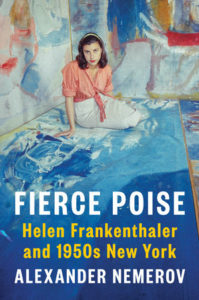
Alexander Nemerov, Fierce Poise: Helen Frankenthaler and 1950s New York, Penguin Press (March 23)
This novelistic biography that tells the story of abstract expressionist Helen Frankenthaler’s early years in postwar New York, using just 11 days of her life between 1950 to 1960—each one an artistic turning point—as a lens. Both subject and structure call my name here, and I’m looking forward to swirling around the NYC art scene with this trailblazer. –ET

Gina Nutt, Night Rooms: Essays, Two Dollar Radio
(March 23)
I may be a wimp when it comes to scary movies, but you better believe I’ll be reading Night Rooms. Gina Nutt uses horror movie tropes to weave together fragmented essays on anxiety and grief, homebuying, and shark-infused family vacations. It’s also inspired one of my favorite blurbs thus far, from Jeannie Vanasco: “I want to read it in an MRI machine just to confirm that every part of my brain indeed lit up.” –ES
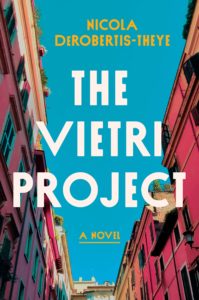
Nicola DeRobertis-Theye, The Vietri Project, Harper
(March 23)
When a novel begins in a bookstore, there’s a pretty good chance I’m going to like it. I don’t know why—something about the sensibility. In this debut, a young woman working in a Berkeley bookstore becomes fascinated by an Italian customer, signor Vietri; later, when she finds herself finding herself in Rome, she embarks on a quest to find him. Alexandra Chang described it as “cool, precise, and elegant,” which sounds like just what I need right now. –ET
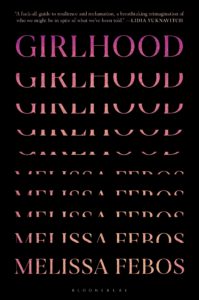
Melissa Febos, Girlhood, Bloomsbury (March 30)
Melissa Febos’s writing is always luminous, fearless, and blazing with intelligence. 2017’s Abandon Me was one of the standout collections of recent years and earned her deserved comparisons to Maggie Nelson and Leslie Jamison. Her new collection of interwoven essays—a blending of memoir, reporting, and criticism—is billed as an examination “of the narratives women are told about what it means to be a girl and the realities of growing up female in a world that prioritizes the feelings, perceptions, and power of men at girls’ expense,” and sounds every bit as essential as her last. –DS
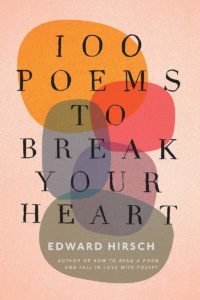
Edward Hirsch, 100 Poems to Break Your Heart, HMH (March 30)
All of us, to lesser or greater degrees, have had our hearts broken by the past year. So why the hell would you seek it out? Well, sometimes it helps to commune with the pain of others, particularly when it’s exquisitely rendered as a poem. I was a big fan of Edward Hirsch’s unexpectedly tender, erudite “how-to” manual for poetry, How to Read a Poem, and I would gladly place my heart in his hands (figuratively), at least for the time it takes to read one of these 100 poems, collected from the last 200 years. –JD
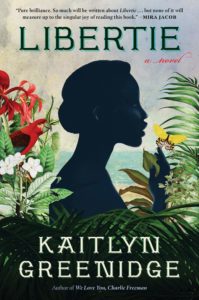
Kaitlyn Greenidge, Libertie, Algonquin (March 30)
Kaitlyn Greenidge is one of those destined-for-greatness contemporary writers and thinkers whose every published word is essential reading, whether those words come in novel, essay, or op-ed form. Her second novel, inspired by the life of one of the first Black female doctors in the United States, is about a free-born Black girl in Reconstruction-era Brooklyn trying to reconcile her physician mother’s expectations with her own lived experience and creative desires. I was bowled over by We Love You Charlie Freeman, Greenidge’s brilliant and disturbing 2017 debut, so Libertie—which Publishers Weekly has already called “[a] genius work of radical historical fiction”—is going right to the very top of my 2021 TBR pile. –DS

Gabriela Garcia, Of Women and Salt, Flatiron (March 30)
This gripping, accomplished debut follows generations of Cuban women, from María Isabel, rolling cigars as she listens to the words of Victor Hugo and men die around her, to Jeanette, struggling with addiction in Miami, and trying to find a place in the world that feels real. An interlocking portrait of women striving, loving, losing, getting lost and getting found. –ET

Hanif Abdurraqib, A Little Devil in America: Notes in Praise of Black Performance, Random House (March 30)
If you’ve been following Hanif Abdurraqib’s writing in The New Yorker, Pitchfork, The New York Times (I could go on), then his new book really needs no further embellishment. If you’ve read Go Ahead in the Rain: Notes to a Tribe Called Quest, then you already know that his writing reads like music on the page; it spits, crackles, and comes to life. The much-anticipated A Little Devil in America is a thorough and engaging look at Black performance and its role in American culture. I can say all the usual things—that this book is timely and resonant and important—but instead I will say that, more than anything, it’s a celebration. –KY
APRIL
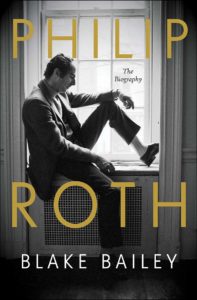
Blake Bailey, Philip Roth: The Biography, W.W. Norton (April 6)
Well, obviously. Bailey’s absolutely massive (880 pages!), years-in-the-making, fully authorized, definitive biography of Philip Roth is certain to be one of the biggest literary events of the season, and one everyone is likely to have an opinion about. Start anticipating that opinion now. –ET

Elizabeth Kolbert, Under a White Sky: The Nature of the Future, Crown (April 6)
Elizabeth Kolbert, who has produced some of our most vital writing on climate change (including the Pulitzer-winning The Sixth Extinction), now turns to the stories of those who are surveying what is left of the natural world and fighting, with skill and innovation, to preserve it. Her reporting spans the globe, from engineers in Iceland to scientists in Australia, while reconsidering the role of human intervention and its status in the scientific world. –CS
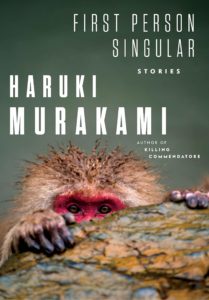
Haruki Murakami, tr. Philip Gabriel, First Person Singular, Knopf (April 6)
Hello, it is a new short story collection from Haruki Murakami, his first to be translated into English since 2017’s Men Without Women, and all, you guessed it, told in the first person singular. “Occasionally,” the publicity copy tells us, “a narrator may or may not be Murakami himself. Is it memoir or fiction? The reader decides.” So . . . Murakami does autofiction? I’m here for it. –ET

John Edgar Wideman, You Made Me Love You : Selected Stories, 1981-2018, Scribner (April 6)
It’s risky territory to call someone underappreciated or underread, as it often reveals more about the limits of the reader than the importance of the writer. So I’m just here to say that if you haven’t read John Edgar Wideman, this new selected stories would be a great place to start. This collection of 35 stories captures the full range of Wideman’s prodigious literary powers, from a formal audacity that places deep faith in its readers, to a perfect pitch for the fragmentary monologues of the human heart. Wideman reminds us that you can just as readily write about what’s closest to home as you can about the great unknowns of existence. –JD
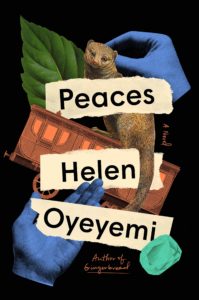
Helen Oyeyemi, Peaces, Riverhead (April 6)
Damn. Helen Oyeyemi must be the fastest literary novelist in the business. Which doesn’t bother me one little bit, because I’m always ready to read more from her. This latest concerns a hypnotist on a train-bound non-honeymoon with his boyfriend and their pet mongoose, and sounds like an absolute weirdo delight. As usual! –ET
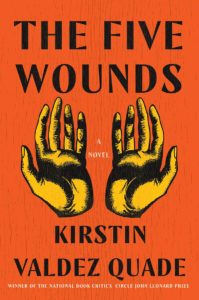
Kirstin Valdez Quade, The Five Wounds, W. W. Norton (April 6)
I am not the only person anticipating this debut novel by Valdez Quade, whose story collection Night at the Fiestas won the NBCC’s John Leonard Prize back in 2015. The other person? Oprah. Like her fellow chronicler of southwestern drift, Lucia Berlin, Valdez Quade’s stories are populated by hard luck characters on the hunt for a little tenderness, too often thwarted by their own worst tendencies. The Five Wounds, about “about a New Mexican family’s extraordinary year of love and sacrifice” promises more of the same, and Oprah and I are ready. –JD
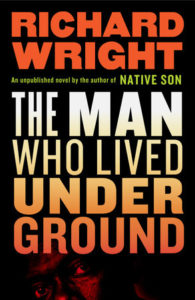
Richard Wright, The Man Who Lived Underground, Library of America (April 6)
A previously unpublished novel by Richard Wright is certainly cause for literary celebration. According to Library of America, The Man Who Lived Underground was written in the same period as Wright’s masterpieces Native Son and Black Boy, but has never before been published in full (a condensed version was included in the posthumous story collection Eight Men). “I have never written anything in my life that stemmed more from sheer inspiration,” wrote Wright of this novel. I can’t wait to read it. –ET
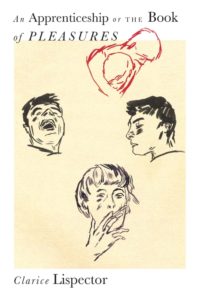
Clarice Lispector, tr. Stefan Tobler, An Apprenticeship, or The Book of Pleasures, New Directions (April 6)
In 1964, Clarice Lispector published The Passion According to G.H., a towering work of mysticism and metaphysics that would cement her reputation as a literary stylist and late-modernist innovator on a par with Borges and Nabokov, and that would prove to be something of a monster from whose shadow she would spend the next decade struggling to emerge. Two years later, having fallen asleep while smoking, Lispector awoke to find her apartment in flames, her clothes melted to her skin, her papers all but destroyed despite her efforts to save them. She suffered third-degree burns, was hospitalized for months; her writing hand was scorched and disfigured; and she would suffer enduring pain for the rest of her life. So while recovering, she produced… a romance novel? A passionate, tender work, An Apprenticeship is also perhaps Lispector’s most accessible. She herself admitted as much; in it, she remarked “I humanized myself.” –EF

Michaela Carter, Leonora in the Morning Light, Avid Reader Press (April 6)
Hello, it is a historical novel about the life of Leonora Carrington. (Read: Paris! Surrealism! Degenerates! Female Genius!) That’s all I need to know for it to slide right into my TBR stack. –ET
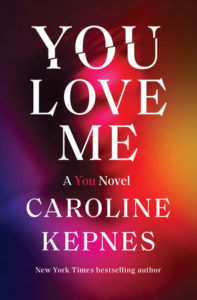
Caroline Kepnes, You Love Me, Random House (April 6)
I couldn’t wait to dive into the new novel from Caroline Kepnes, the third in her saga of Joe the psychopathic bookseller and his many true loves, and even though an advanced reading copy for this one was rather hard to come by. In You Love Me, Joe is out of prison but cut off from his son with Love Quinn, as he embraces his new exile from California by stalking a new love interest—the local librarian, Mary Kay. MK is married to an aging rocker and mother of a teenage girl, but of course Joe is out to break down her relationships and worm his way into her soul, while self-justifying all the while. Kepnes’s savage takedowns of pretentious blowhards continues to make Joe a more culturally aware Dexter, or perhaps a more romantic and humorous Hannibal, as he pillories the bad taste of his rivals and victims. –MO

Rachel Kushner, The Hard Crowd: Essays 2000 – 2020, Scribner (April 6)
Herein are collected two decades of literary journalism, cultural criticism, and memoir by the author of the lauded Telex from Cuba, The Flamethrowers, and The Mars Room. Come for the sharp portraits of Jeff Koons and Denis Johnson, the blistering reportage from refugee camps and illegal motorcycle races, or the light-with-laughter-yet-heavy-with-yearning paeans to classic cars and the San Francisco indie scene of the 1980s; stay for the opportunity to witness the maturation of one of the most intelligent and distinctive literary sensibilities of our time. –EF
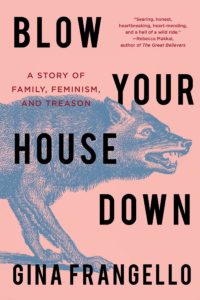
Gina Frangello, Blow Your House Down: A Story of Family, Feminism, and Treason, Counterpoint (April 6)
I’m a sucker for the sort of story arc in Blow Your House Down: Woman follows the rules. Woman becomes wife, mother. Woman is “good” in all things. One day, following crisis or unrelenting ennui, woman realizes that her life feels hollow or binding, so she sets about changing said life (sometimes in explosive fashion). I love this story enough in novel form, but better yet, Gina Frangello unravels it in all its reckless, transgressive, messy glory in this memoir about womanhood and misogyny, sex and joy. –ES
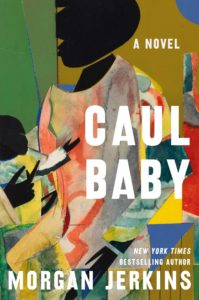
Morgan Jerkins, Caul Baby, Harper Books (April 6)
From two nonfiction books, including the New York Times bestseller This Will Be My Undoing, comes a debut novel, about familial connection, tradition, and the darker contours of human existence. An intergenerational narrative, Caul Baby follows Laila who desperately wants to become a mother but has several unsuccessful pregnancies. When she reaches a breaking point, she turns to the Melancons, a powerful Harlem family known for their caul, a priceless layer of skin that is the secret source of their healing power. What happens next is a mix of intrigue and betrayal, one that unearths the meaning of family and the bonds that tether us to one another. –RS

Gillian Flynn, Hamlet, Random House (April 8)
Supposedly, the long wait for Gillian Flynn’s Hamlet retelling, which was commissioned as part of the Hogarth Shakespeare project, is nearly at an end. That’s all I know, but as someone who loves Hamlet and admires Flynn, I hope that this is indeed our year. –ET
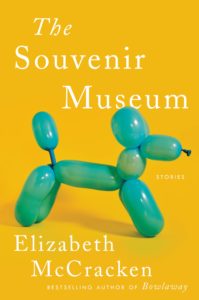
Elizabeth McCracken, The Souvenir Museum, Ecco (April 13)
McCracken is a tremendously sharp, soulful, and witty writer, rightfully considered one of finest American short story practitioners at work today (her 2019 novel Bowlaway is also magnificent). This latest collection of wry, emotionally complex family stories features a recent widower and his adult son in search of puffins on a Scottish island, an actress (known for playing a villain on a children’s TV show) ushering in the New Year with her good-for-nothing half-brother, and two fathers taking their toddler on an ill-fated trip to a German-themed Galveston water park. –DS
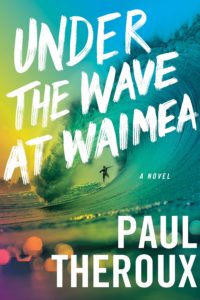
Paul Theroux, The Under the Wave at Waimea, HMH (April 13)
A novel following a sexagenerian surfer as he confronts his own mortality, aging, and privilege. When the surfer accidentally kills a man near Waimea, he becomes determined to uncover the person’s life story, one that unexpectedly intersects with his own (before the accident, of course). Set in Hawaii, the book offers a different perspective on what many consider an Edenic place. –RS
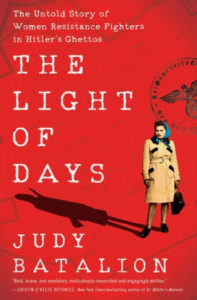
Judy Batalion, The Light of Days: The Untold Story of Women Resistance Fighters in Hitler’s Ghettos, William Morrow (April 6)
The risk in lionizing individual heroism (especially in contemporary America!) is that we lose sight of the massive power imbalances that require such heroism in the first place. But it is hard not to draw inspiration and courage from the story of Renia Kukielka, the “weapons smuggler who risked death traveling across occupied Poland” who sits at the center of Judy Batalion’s chronicle of women resistance fighters WWII Poland. At great personal risk, a group of young Jewish women did everything they could to undermine Nazi power in occupied Poland, bombing train lines, taking care of sick children, and assassinating members of the Gestapo. Of course, Stephen Spielberg will be adapting this one for the screen. –JD
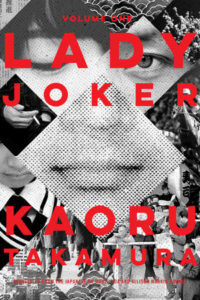
Kaoru Takamura, Lady Joker, Soho Crime (April 13)
Kaoru Takamura’s magnum opus Lady Joker is already considered classic literature in her native Japan, where it has also been the subject of several adaptations since its mid-90s publication. This year, thanks to the tireless efforts of Soho Press and several translators, Lady Joker will finally appear in English, so we can all have a chance to read a work that earns frequent comparisons to L.A. Confidential in its scope. Lady Joker follows five racetrack regulars as they hatch a plan to kidnap a beer industry titan, seeking vengeance after one loses a grandchild and blames the death on the company’s discriminatory hiring practices. –MO

Bolu Babalola, Love in Color: Mythical Tales from Around the World, Retold, William Morrow (April 13)
A Nigerian goddess who longs to be seen, a young business woman who makes leaps in her love life, an influential Ghanaian spokeswoman who must decide if she will be true to her heart—these are just some of the characters you’re set to encounter in Babalola’s debut short story collection. Centering the folktales of West Africa, Babalola retells some of the most enduring mythologies with a refreshing voice. And though she also draws on Greek myths and legends of the Middle East, Babalola is keen to decolonize tropes inherent to these stories. This book is a celebration of love—its challenges and its sweet promise. –RS
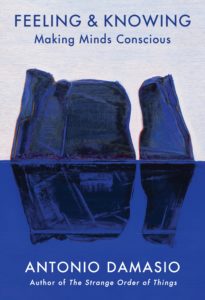
Antonio Damasio, Feeling & Knowing: Making Minds Conscious, Pantheon (April 13)
I hate to break it to you but the problem of consciousness is getting harder, not easier (as a lapsed philosophy grad, I say this with a heavy heart). As we hurtle ever-nearer to the Singularity the threshold for what constitutes autonomous sentience grows fuzzier—so fuzzy, in fact, that most philosophers have just kind of walked away from the problem. Not so Antonio Damasio, who is also a professor of psychology and neurology. For Damasio, the answer lies in a synthesizing of disciplines, and he draws from the latest in the hard sciences—biology, neuroscience—to shed light on the frequently recondite explorations of consciousness, the legacy of centuries of philosophy. –JD
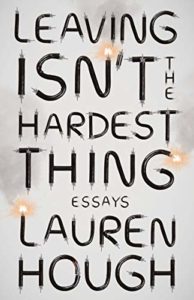
Lauren Hough, Leaving Isn’t the Hardest Thing: Essays, Vintage (April 13)
Folks have been gushing about Lauren Hough’s memoir-in-essays for what feels like years now thanks to the time-warp of 2020, and I can’t wait to get my hands on a copy. In a wide-reaching collection of tales, she writes about growing up in a nomadic cult, confronting homophobia in the Air Force, resentfully installing cable for Dick Cheney, and so much more. In a glowing Goodreads review, Roxane Gay wrote that “this is one of those rare books that will instantly become part of the literary canon.” Okay, then! –ES
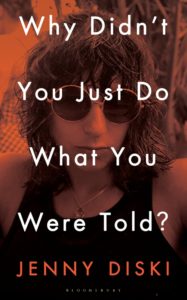
Jenny Diski, Why Didn’t You Just Do What You Were Told?: Essays, Bloomsbury (April 20)
Jenny Diski was a brilliant writer—funny and fearless, she spent her last years chronicling her own cancer diagnosis in her column in the London Review of Books. The essays in her new collection, selected by her editor and friend Mary-Kay Wilmers (a brilliant essayist in her own right), have been described as “virtuoso performances,” and “small masterpieces.” From Highgate Cemetery to the icebergs of Antarctica, Diski is a writer that if you’re not familiar with, you must remedy. –EF
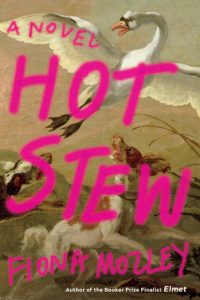
Fiona Mozley, Hot Stew, Algonquin (April 20)
I was floored by Mozley’s debut novel, Elmet, which I maintain not enough people read (at least in this country—it was shortlisted for the Booker Prize, which usually means the Brits are On It), so I’m hoping her sophomore effort will bring her the stardom she deserves. In it, Mozley trades the Yorkshire forest to London’s Soho, where a wealthy developer is trying to turn an old building—which currently houses a brothel—into a luxury condo. The drama that they drum up is, apparently, the titular hot stew. Sounds amazing. Also: that cover is killing me. Can’t wait. –ET
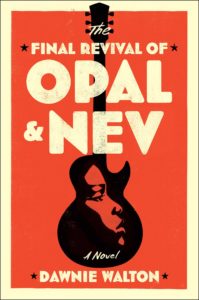
Dawnie Walton, The Final Revival of Opal and Nev, 37 Ink (April 20)
Dawnie Walton has crafted a rock ‘n roll novel for the ages. In The Final Revival of Opal and Nev, we’re introduced to Opal, a pioneer of Afro-punk with a shaved head and outrageous costumes, who teamed up with British singer-songwriter Nev for one glorious album, until a disastrous showcase ended their partnership when it had barely begun. Decades later, a music journalist with a personal connection to the band is working on a book about the band’s short-lived history when she discovers explosive new info about the disastrous concert that broke up the band. –MO
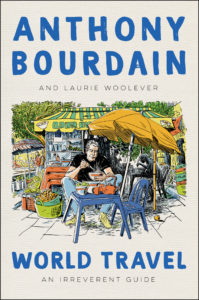
Anthony Bourdain and Laurie Woolever, World Travel: An Irreverent Guide, Ecco (April 20)
Anthony Bourdain’s signature voice—his enthusiasm for exploration and ability to search out unique experiences—is the main draw of World Travel, which offers anecdotes and travel advice from the late chef and travel writer. The book also provides essays from Bourdain’s friends and family, honoring his life’s work of connecting people, and cultures, through cuisine. –CS
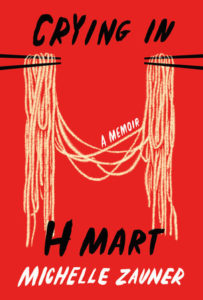
Michelle Zauner, Crying in H Mart: A Memoir, Knopf (April 20)
Michelle Zauner, aka Japanese Breakfast (if you know, you know), has expanded her wonderful 2018 New Yorker essay about her mother’s death into a full-length memoir, in which she writes about growing up Korean American in Eugene, Oregon, her life in food and in music, her relationship with her mother, and her mother’s cancer. I’m looking forward to reading more from Zauner. –ET
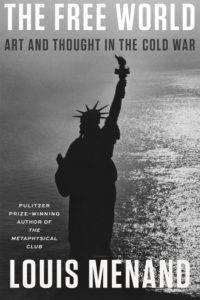
Louis Menand, The Free World: Art and Thought in the Cold War, FSG (April 20)
The history of ideas is never fixed, final: like amateur genealogists we are always encountering unexpected connections and recognizing previously illegitimate claims. To understand the way “we” think now, is to understand how we got here, which is why I’m looking forward to critic Louis Menand’s expansive survey of post-war intellectual life. From the flat gallic flare of café existentialism to the multi-disciplinarian playfulness of the Black Mountain School, Menand charts a course back and forth across the Atlantic, taking on passengers as diverse as Hanna Arendt, Elvis Presley, James Baldwin, and Susan Sontag, revealing how each, in their way, contributed to the rise of a true American culture. –JD
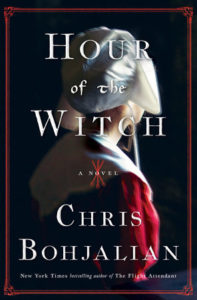
Chris Bohjalian, Hour of the Witch, Doubleday (April 20)
There are a whole lot of books coming out this year about witches, and each one looks truly magnificent. In Bohjalian’s latest, a young Puritan woman trapped in a loveless marriage in 17th-century Boston is desperate to get out of her unpleasant union. But will her methods subject her to scrutiny and suspicion even more dangerous than her husband? Chris Bohjahlian is also the author of Water Witches, a story of dowsers, that’s recently been released in a new 25th anniversary edition if you can’t wait till April to get your witch on. –MO
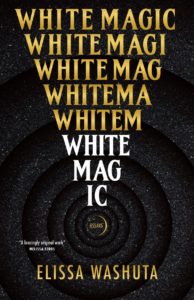
Elissa Washuta, White Magic, Tin House (April 27)
Over the past few years, I’ve had the great luck of listening to Elissa Washuta read sections from her forthcoming book, making it my most anticipated read of 2021. (You can read the opening for yourself over at Guernica.) The way she obsessively plumbs her subjects—from Red Dead Redemption to a Stevie Nicks YouTube video to a conference for magicians in Columbus, Ohio—in order to explore love, trauma, and colonization leaves no doubt that she is, indeed, a powerful witch. –ES
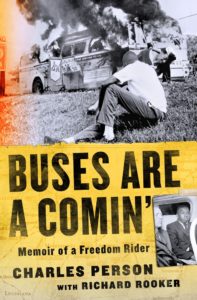
Charles Person with Richard Rooker, Buses Are a Comin’: Memoir of a Freedom Rider, St. Martin’s Press (April 27)
A “front-row” historical view of one of America’s greatest struggles—desegregation. Written by a Civil Rights Movement’s pioneer, Buses Are a Comin’ follows Charles Person, one of the youngest Freedom Riders who left D.C. by bus in 1961 for New Orleans. It is a book that dives deep into a dark past, but also shows what it means to create a more radical future. –RS
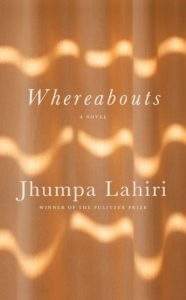
Jhumpa Lahiri, Whereabouts, Knopf (April 27)
This might sound ridiculous, but I’ve already cleared some space on my bookshelf for this beauty. Perhaps this will seem less ludicrous, Reader, once I remind you that this is the first novel Lahiri has published in ten years. And even more, Whereabouts is the first novel Lahiri wrote in Italian and translated into English. The protagonist of this tale negotiates stillness and movement, and community and alienation, as she grapples with her father’s untimely death. She ultimately forges a relationship with the sea and her transformation is inevitable. –RS

Dominique Barbéris, tr. John Cullen, A Sunday in Ville-d’Avray, Other Press (April 27)
In this book, two estranged sisters meet-up, one of whom has had a romantic “encounter” with life outside her suburban, mapped-out provincial life on the outskirts of Paris. She relays the encounter to her sister one quiet afternoon when there’s nobody to interrupt them. There’s no high turret of emotion, but rather the wandering of an apprehensive heart: excited, romantic, secret, with an undercurrent of disappointment and mystery, all bound up in Barbéris’s atmospheric prose that maps the unrealized dreams of women. –KA
MAY
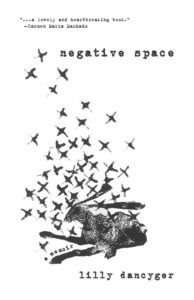
Lilly Dancyger, Negative Space, Santa Fe Writer’s Project (May 1)
In editor and essayist Dancyger’s debut memoir, she re-evaluates a childhood spent idolizing her father, Joe Schactman, an artist and a heroin addict who died suddenly when Dancyger was young—and embarks on a journey to demythologize, and finally understand, the man himself. As a fan of Dancyger’s whip-smart essays and criticism, I’m definitely looking out for this one. –ET

Kate Durbin, Hoarders, Wave Books (May 4)
Each poem in this book is a portrait of a person and the objects they hoard. The frame is a reality TV show; Durbin juxtaposes character narration with envisioned images onscreen. The result: an absurd, bracingly funny depiction of the misery of consumerism—but also something tenderer, about the attachments that make up a life. –WC
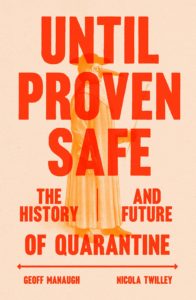
Geoff Manaugh and Nicola Twilley, Until Proven Safe: The History and Future of Quarantine, MCD (May 4)
It is definitely too soon to be publishing a history of Covid-19, particularly anything that might make claims about handling it well… Thankfully, this is not that. Until Proven Safe is an urgent account of how human beings have tried—and often failed—to contain the viral miseries that have literally plagued us since pre-history, from early lazerettos to the hermetically sealed labs at the CDC. Painfully—fatally—we now know that one person’s strict lockdown is another person’s maskless trip to Dairy Queen, so as we enter what *should* be the final phase of the Covid-19 pandemic, let’s hope we don’t end up as just another grim chapter in future editions of this book. –JD

Muriel Leung, Imagine Us, The Swarm, Nightboat (May 4)
Muriel Leung’s poems never flinch, and they never allow you to look away from the difficult, the contradictory, or the painful. Leung’s unforgettable Bone Confetti won the Noemi Press Book Award and brought much-deserved attention to her sharp, inventive approach to language; Imagine Us, The Swarm turns her vision toward an intergenerational story of violence, vengeance, and forgiveness. –CS

Joy Harjo, ed., Living Nations, Living Words: An Anthology of First Peoples Poetry, W.W. Norton (May 4)
I mean it’s Joy Harjo! First Native American to become the US Poet Laureate (and hold an unprecedented three terms!) Joy Harjo. What more should I say? But seriously, Harjo has edited an incredible volume of contemporary Native poetry into a “digital map of story, sound, and space.” There is work from Natalie Diaz, Ray Young Bear, Craig Santos Perez, Sherwin Bitsui, and Layli Long Soldier, among many others. This should be required reading for everyone, really. –RS

Henry Dumas, Echo Tree: The Collected Short Fiction of Henry Dumas, Coffee House (May 4)
Henry Dumas is one of my favorite poets ever, and few know his name. There are reasons for this: for one, he was killed at quite a young age—in 1968, at the age of 28, by a police officer. But Toni Morrison said his work had “the quality and quantity almost never achieved in several lifetimes.” Dumas’ selected poetry Knees of a Natural Man was published in October 2020, and now we have his collected short fiction, which features gothic romances, psychological thrillers, ghost stories, and more. Trust me, Reader, Dumas is electric, with writing that pulses through the vein, pumping straight for your heart. –RS
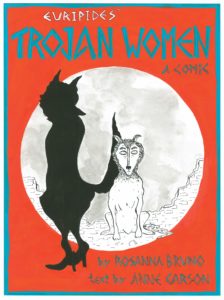
Rosanna Bruno and Anne Carson, The Trojan Women: A Comic, New Directions (May 4)
What do you get when you cross Euripides’ classic tragedy, the artistic stylings of Rosanna Bruno, and the poetic touch of Anne Carson? This book! This book that I, for one, am absolutely anticipating. (I have loved comic book renditions of classic myths and stories ever since reading R. Crumb’s illustrated Book of Genesis. There’s just so much room to play and experiment!) Here’s what we know: Troy has been ravaged. Everyone is depicted as an animal (except Kassandra, who is another planet, which actually makes complete sense when you think about it). I mean, need I say more? –KY
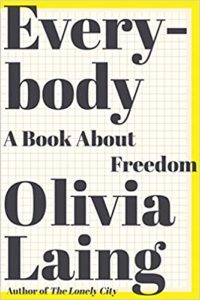
Olivia Laing, Everybody, W.W. Norton (May 4)
Drawing from complicated historical figures like Nina Simone, Christopher Isherwood, Andrea Dworkin, Sigmund Freud, Susan Sontag, and Malcolm X, Laing charts the longstanding struggle of bodily autonomy, with due consideration of gay rights and sexual liberation movements, feminism, and civil rights. She also grapples with her own experiences with protest and her own approaches to alternative medicine. –RS
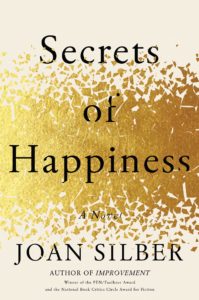
Joan Silber, Secrets of Happiness, Counterpoint (May 4)
A new Joan Silber book is always a reason to celebrate. Her latest is the story of a family—two families—exploding after a years-long infidelity comes to light, told in intersecting, polyphonic voices, like a tapestry of those affected. Silber used a similar technique splendidly in Improvement; I’m looking forward to seeing what she does with it here. –ET

Alison Bechdel, The Secret to Superhuman Strength, Houghton Mifflin (May 4)
HECK YEAH new Alison Bechdel! Can that be the blurb? No? That’s okay; I have a lot of effusive things to say about Alison Bechdel, brilliant illustrator and creator of the Bechdel test. Have you read her incredibly moving graphic tragicomedy Fun Home? What about her cornerstone comic Dykes to Watch Out For? If you’ve answered no, then the good news is you have five months to catch up. Once you’ve sped through both of those, you too will be anticipating The Secret to Superhuman Strength, in which Alison Bechdel turns her careful attention and heartfelt wit to exercise and fitness fads. Spin classes?! She’s coming for you! –KY
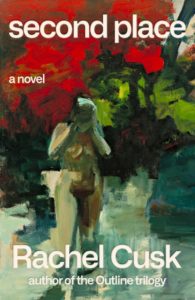
Rachel Cusk, Second Place, FSG (May 4)
From the author of the most Instagrammable literary trilogy in recent memory (and also one of the best, but what does that matter in this economy?), comes a “fable of human destiny and decline,” which, from the sounds of it, hits all the notes Cusk plays so very well, asking questions about art, gender, relationships, morality, and all the weird, uncomfortable realities that come from being conscious and in the world. Can’t wait. –ET

Donika Kelly, The Renunciations, Graywolf (May 4)
A new book of poems from the author of the excellent Bestiary, described by the publisher as “a book of resilience, survival, and the journey to radically shift one’s sense of self in the face of trauma.” –ET
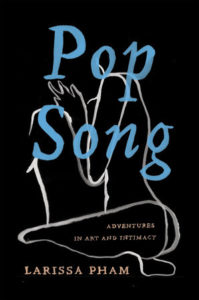
Larissa Pham, Pop Song: Adventures in Art & Intimacy, Catapult (May 4)
Part memoir-in-essays, part art theory, Pop Song juxtaposes Larissa Pham’s memories of a love affair and her musings on sex, intimacy, and trauma with echoing works of art, including Nan Goldin’s “Heart-Shaped Bruise” and Frank Ocean’s Blonde. Speaking of echoes, its description strikes me as peak resonant with the past year: “a perfectly fractured portrait of modern intimacy that is triumphant in both its vulnerability and restlessness.” –ES
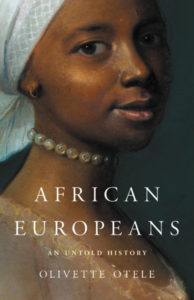
Olivette Otele, African Europeans: An Untold History, Basic Books (May 4)
As the BISAC categories for this book show, the concept of African Europeans is apparently a confusing one: the book is assigned to “Africa, General,” “Women” and “Nonclassifiable,” even though the world European is in the title. And if BISAC categories don’t even make a space for African Europeans, then how did the figures Otele writes about establish their cross-cultural identities at a time when social, ethnic, and racial categories were becoming increasingly rigid? And how can the story of Africans in Europe be recast not as the stories of outliers, but as the narrative of a people? Check out Olivette Otele’s illuminating history of African Europeans for answers to these questions and more. –MO
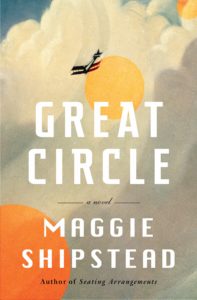
Maggie Shipstead, Great Circle, Knopf (May 4)
Give me a dual narrative of two women in different centuries just trying to live their best lives, and I’ll be there. Striving Woman No. 1 is Marian Graves, a globe-trotting pilot with a dangerous patron whose infamous story comes to a dramatic end when she disappears in Antarctica. Striving Woman #2 is Hadley Baxter, cast to play Marian in a biopic and eager to transcend Hollywood’s blatant sexism. I trust Maggie Shipstead to land this plane with minimal turbulence. –ES
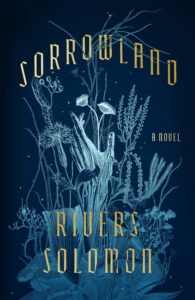
Rivers Solomon, Sorrowland, MCD (May 4)
I’ll be setting aside a weekend to read Sorrowland, which feels like the only right way to do it. In the woods, a woman named Vern gives birth to twins. She’s fled a religious compound and plans to raise her children apart from the world, but the compound wants her back, and Vern’s defenses become ever more violent and unfathomable as her body transforms on its own accord. –ES

John Freeman, ed., The Penguin Book of the Modern American Short Story, Penguin Press (May 11)
I’m a sucker for short story anthologies—I’ll buy them all. They almost always introduce me to something new, and remind me of things I already love. Penguin’s latest surveys the last 50 years and includes stories by Ursula K. Le Guin, Lauren Groff, Lydia Davis, Toni Cade Bambara, Ken Liu, Jhumpa Lahiri, George Saunders, Susan Sontag, Sandra Cisneros, Grace Paley, Ted Chiang, and others. –ET
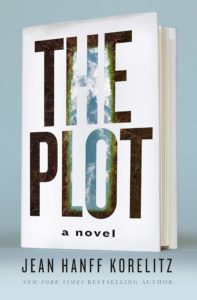
Jean Hanff Korelitz, The Plot, Celadon Books (May 11)
Jean Hanff Korelitz wrote the novel behind HBO’s recent series The Undoing, and her newest novel promises to deliver just as many surprises. In this wickedly clever tale of stolen genius, a disappointed writer working at a dead-end job doesn’t expect much from his MFA students—at least, until one of them dies, leaving his MOST promising manuscript behind. It only takes a little tinkering for Korelitz’s narrator to pass off the masterpiece as his own. Will the literary world ever learn of its true authorship? –MO

Edmund de Waal, Letters to Camondo, FSG (May 11)
When world-renowned ceramic artist Edmund de Waal was invited to show his work at the Paris house-turned-museum of late 19th-century art collector Moise de Camondo—a wealthy philanthropist who was eventually murdered by the Nazis—he felt himself compelled to write a series of letters to his long-dead “benefactor.” Similar to de Waal’s forebears, the Ephrussi family, the Camondos were subject to rampant French antisemitism, despite their innumerable contributions to Belle Epoque society. De Waal, who won the Costa Biography Prize for The Hare with Amber Eyes, is one of those multidisciplinary talents, and his writing is not to be missed. –JD

Tracy K. Smith and John Freeman, eds., There’s a Revolution Outside, My Love, Vintage (May 11)
In a world wracked by polarized politics, a bruising pandemic, and injustice that precipitates and beats down on protests, the collection There’s a Revolution Outside, My Love provides a warm, poignant gathering from all across America of some of our most notable voices—poems, essays, laments, psalmic meditations—that sing of the sorrow and beauty and uncertainty and hope of the moment. These are letters written from the inner chambers of the heart, resonating with the questions that keep us up at night, and offering the recognition and generosity that helps us to step outdoors in the morning. As Kirsten West Savali, whose essay supplied the collection’s moving title, says: “I promise you this: You will see your pain in others, as I see my pain in you. You will see your power in others, as I see my power in you. And now, right now, I call on all of our ancestors to guide my steps in such a way that I’m still alive to love you through it.” This book is a promise, a solace, a sounding of our cries for justice and need for love. It’s nothing short of essential. –Garnette Cadogan, Contributing Editor

Daniel Kahneman, Oliver Sibony, and Cass R. Sunstein, Noise: A Flaw in Human Judgment, Little, Brown Spark (May 18)
Doctors give different diagnoses to identical patients. Judges assign different sentences to the same crime. This type of “noise,” variability in judgments that should be identical, ruins lives every day, and I’m panicking just thinking about it. Noise: A Flaw in Human Judgment shows us how noise creates error in many fields, then how we as individuals can reduce noise in our own lives. Let’s get optimizing! –WC

Aminatta Forna, The Window Seat: Notes From a Life in Motion, Grove Press (May 18)
Aminatta Forna moves through the world—in nature, in the city, in transitional spaces; from Sierra Leone to Scotland to Iran to Mali to the United States—with a shrewd eye and nimble intelligence that makes her every observation a beguiling adventure. And you want to follow her closely, for she’s an astute guide attuned to the complexities of movement and displacement, history and memory, politics and race, family and animals, love and loss. In a series of intertwined essays full of wit and smarts, The Window Seat: Notes From a Life in Motion, she overflows with insight that helps us wrestle with what it means to see the world as a shared space. This eloquent book, propelled by Forna’s capacious mind and big heart, is a vital meditation on how we belong and how we should embrace others to help them find a home in places of unease. –GC
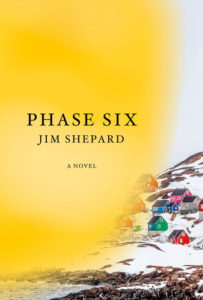
Jim Shepard, Phase Six, Knopf (May 18)
From a National Book Award finalist comes a searing novel about the next pandemic. In fact, this novel was written before the COVID-19 pandemic even occurred and, for some, is almost a sequel to our current, nightmarish crisis. The novel follows Aleq, an 11-year-old boy, who is one of the last survivors of the initial break and is likely patient zero. Through multiple perspectives and sweeping glimpses into the megastructures of our society, Shepard crafts a tale about the special bonds we forge during catastrophe and the other worlds we can mold from what’s left of the old. –RS
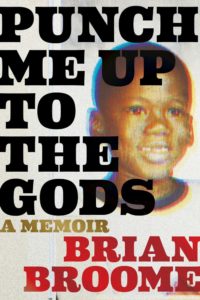
Brian Broome, Punch Me Up to the Gods: A Memoir, HMH (May 18)
Some memoirs derive their power from the exceptional circumstances of the writer’s life; others soar entirely on the unique register of the writer’s voice: by all accounts, Brian Broome’s Punch Me Up to the Gods works at both levels. With heartbreaking humor and tenderness Broome recounts life as a young Black man growing up in Ohio, struggling with an intense, unrequited longing that eventually leads to indiscriminate sex and substance abuse. While accounts of queer, Black life in America are far more prevalent today than they were even ten years ago, it would be hard to overstate the importance of telling more and different stories, that even one young person might see themselves portrayed and feel less alone in the world. –JD
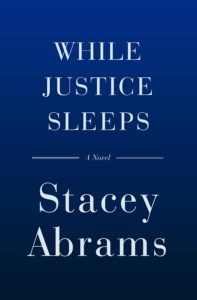
Stacey Abrams, While Justice Sleeps, Doubleday (May 25)
We should all be thanking our lucky stars for Stacey Abrams! Not only was she instrumental in our last election (YEAH, GEORGIA), but she really led the charge against voter suppression. (Sorry, I know this list is already long, but if I may pile on one more recommended reading, it’s her previous book, Our Time Is Now: Power, Purpose, and the Fight for a Fair America. It will light a fire under your ass.) It might come as a surprise, then, to some of you that her next book is actually a novel. And NO, it’s not a romance, like her other wildly popular novels. (Why is Stacey Abrams THE ACTUAL COOLEST?!) This one takes the form of a legal thriller, set in the hallowed halls of the Supreme Court. Hey, Stacey Abrams can do anything. I’m all in. –KY
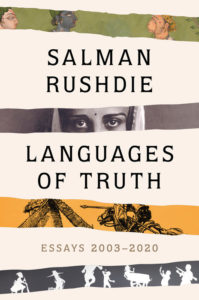
Salman Rushdie, Languages of Truth: Essays 2003-2020, Random House (May 25)
Some new Salman Rushdie is a big deal, okay. And this book offers newly collected, revised, and expanded essays (some never previously in-print) on the nature of storytelling, censorship, multiculturalism, and the malleability of language, among many pressing topics. What makes this text monumental is not only that it exclusively features work from the 21st-century but that it tracks Rushdie’s intellectual development with several cultural shifts that are defining features of this age. –RS
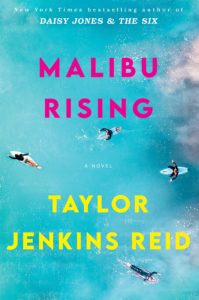
Taylor Jenkins Reid, Malibu Rising, Ballantine (May 25)
Four famous siblings throw a party, and it’s bananas. By midnight, the party is bonkers. And by morning, everything is just bat shit. What happens in between, you ask. You’ll have to read the book to find out. Don’t miss out on a story about what one keeps of people and what one leaves behind. –RS
JUNE

Zakiya Dalila Harris, The Other Black Girl, Atria (June 1)
Zakiya Dalila Harris’s The Other Black Girl is a brilliant, twisty, and highly relevant thriller inspired by the author’s own experiences in working in the still very white world of publishing. An editor at a prestigious publishing imprint is elated when she finally gets another Black colleague, but her happiness quickly turns to confusion and trepidation when her coworker seems more interested in competing with her than helping her. Things get weirder when Harris’s heroine notices how strangely comfortable her colleague is in the white world, and starts getting notes on her desk telling her to leave the company—before it’s too late. Perfect for fans of Alyssa Cole’s When No One Is Watching, or Amina Akhtar’s #FashionVictim. –MO

Kristen Arnett, With Teeth, Riverhead (June 1)
Kristen Arnett is my favorite person on Twitter. On December 14th, she tweeted: “hear me out: pringles can but it’s full of hamsters.” What? Reader, I lost it. She’s hilarious. She brands herself as the internet’s 7/11-loving, dog-owning boat dad. If you share her specific and weird brand of humor (and if you read and loved her first novel, Mostly Dead Things), then you will surely enjoy With Teeth. It’s about a woman who’s afraid of her son, uneasy about motherhood, and envious of her wife. Funny? Heartbreaking? This could really go either way, and knowing Kristen Arnett, it’ll be a little bit of both in a surprising and delightful way. –KY

Benjamin Percy, The Ninth Metal, Houghton Mifflin (June 1)
A comet’s debris crashes into northern Minnesota, destroying much but also leaving behind a priceless asset: a ninth metal called omnimetal, with energy-renewing potential that could reroute humanity from destroying the planet for a tad longer. So begins a modern gold rush, full of greedy bad guys, shady business deals, and families torn apart—including the Frontiers and their prodigal son, John, who’s returned home at either the best or worst time. –ES
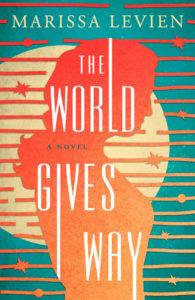
Marissa Levien, The World Gives Way, Redhook (June 1)
It’s hard not to feel parallels between our world—a floating rock protected by an atmosphere we can’t stop punching holes into—and the world of Levien’s debut novel: a ship the size of Switzerland on a 300-year trip to a new inhabitable planet, protected by a hull . . . that now has a hole in it. But in this book, it’s only Myrra, a contract worker on the run, knows the fate that’s about to befall everyone she’s ever known, including Tobias, a rookie security officer tasked with bringing her to justice, and Charlotte, the baby she may or may not have kidnapped. A charming novel about the end of the world (the ship). –ET
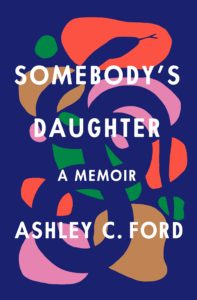
Ashley C. Ford, Somebody’s Daughter, Flatiron (June 1)
In addition to her own hosting roles (see The Chronicles of Now and Lovecraft Country Radio), Ashley Ford consistently shows up as a guest in my podcast queue, which is the only reason I need to stop whatever I’m doing and listen. Wise and insightful, she writes in her memoir about growing up with her father’s absence and the mystery of his incarceration—until that reason is revealed, and has profound implications for her life and relationship with him. Expect to see Somebody’s Daughter make waves this year. –ES
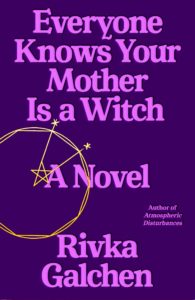
Rivka Galchen, Everyone Knows Your Mother is a Witch, FSG (June 8)
You should know that I’m not impartial; I just love Rivka Galchen. Loved Atmospheric Disturbances, her celebrated 2008 debut on psychic fracture and marital devotion whose nails were bitten to the quick from both the suspense of its plot and the neuroses of its narrative voice. Loved American Innovations, her 2015 collection of some of the most ingenious stories written by anyone anywhere in the past ten years. LOVED (and needed) Little Labors, her 2016 miscellany of sketches and lists and stories all on the theme of babies and literature. And will love, I am sure, her return to the novel form in Everyone Knows Your Mother is a Witch, a mini epic of forever war and plague and societal fracture in 17th-century Germany that also has lots to say about… well, unfortunately, you know. –EF

Lisa Taddeo, Animal, Avid Reader Press (June 8)
Taddeo, who made a big splash with her formally daring work of literary reportage about women and sex, Three Women, follows that up with a debut novel depicting “female rage at its rawest.” Billed as “a visceral exploration of the fallout from a male-dominated society,” Animal tells the story of Joan, who flees a horrific act of violence in New York City to find solace with an old friend on the west coast, from where she might finally find the resolve to strike back. –JD
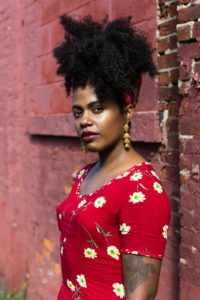
Akwaeke Emezi, Dear Senthuran: A Black Spirit Memoir, Riverhead (June 8)
Video artist and author Akwaeke Emezi burst onto the literary scene in 2018 when their autobiographical debut novel Freshwater became one of the most talked about and critically-acclaimed books of that year. In the short period since, they have published two more novels (Pet, a National Book Award finalist, and The Death of Vivek Oji, a New York Times bestseller) and garnered a slew of major award nominations. Their latest work—an intimate and harrowing memoir of transformation, built from correspondences with lovers, friends, and family—promises to be another spellbinding addition to their already-remarkable body of work. –DS
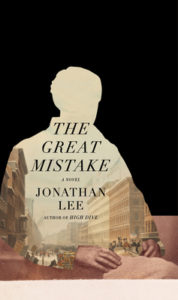
Jonathan Lee, The Great Mistake, Knopf (June 15)
From the author of High Dive comes another rich and riveting work of character-driven historical fiction. The Great Mistake opens with the 1903 assassination of famed city planner Andrew Haswell Green, the man responsible for Central Park, the NYPL, and the MET. From there, Lee takes us back though the life of this complex, conflicted, deep-feeling man as he rises from the humblest of beginning to become “the Father of Greater New York,” all the while haunted by a longing he can never truly express. A triumph of humane historical portraiture, and one of the finest and most pleasurable New York novels I have ever read. –DS
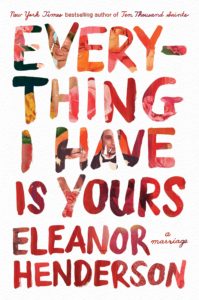
Eleanor Henderson, Everything I Have Is Yours: A Marriage, Flatiron (June 15)
The first memoir from the author of Ten Thousand Saints and The Twelve-Mile Straight unravels twenty years in a marriage shaped by her husband’s chronic, baffling illness. I’m always interested in reading more from Henderson, so I’m looking forward to getting my hands on this one. –ET
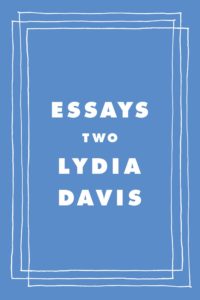
Lydia Davis, Essays Two, FSG (June 15)
Lydia Davis is one of my favorite living writers, the literary embodiment of mercurial curiosity and earned erudition, two of my favorite qualities in a human. This essay collection, focused on the complexities of translation and the delights of language, is an early candidate for best 2021 palate-cleanser of the Horrible, Terrible Plague Year that preceded it. –JD
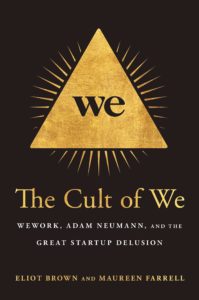
Eliot Brown and Maureen Farrell, The Cult of We: WeWork, Adam Neumann, and the Great Startup Delusion, Crown (June 15)
The story of WeWork is one of extremes, from the ambitious founder who promised to remake urban office space as we know it to the dramatic disintegration of the company and its mission. For WeWork devotees and skeptics alike, this will be a compelling read; the excesses of startup founder culture are well-documented, but WeWork’s Adam Neumann is an especially demonstrative case of the failures of a system that predominantly rewards charismatic men whose bombastic promises usually prove false. –CS
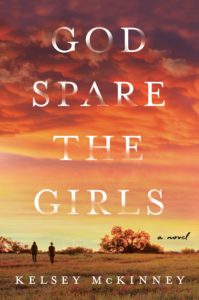
Kelsey McKinney, God Spare the Girls, William Morrow (June 22)
In this debut novel, two daughters of an evangelical megachurch pastor discover that their father has been having an affair—and all you-know-what breaks loose. McKinney is a reporter and a co-owner of Defector, and is very funny on Twitter, so I’m definitely looking forward to reading her longform fiction. –ET
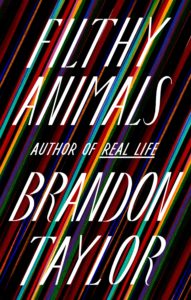
Brandon Taylor, Filthy Animals, Riverhead (June 22)
From the Man Booker finalist (and frequent contributor to this website) comes this debut collection of linked short stories, about young adults entangled in their own complex (and oftentimes competing) desires, repulsions, and attachments. There is a young man who grapples with loneliness, a young woman who is battling cancer, a babysitter on the brink of an emotional break, and couples who struggle to make things work. Roxane Gay praised Taylor as “a writer who wields his craft in absolutely unforgettable ways.” And this collection offers us contexts to think about how fraught longing is, how painful it can be, and why we still yearn for it. –RS
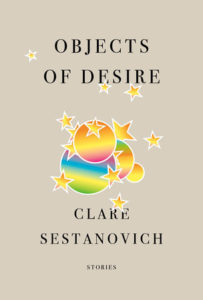
Clare Sestanovich, Objects of Desire, Knopf (June 29)
Leslie Jamison described the characters in this debut collection from an editor at The New Yorker—where you may remember reading this very good story last year—as being “observed with wry, prism-gazed tenderness; sketched deftly and persuasively with just a few perfect strokes. The details go off like bombs. These stories know strange, important truths about what it feels like to be alive.” Considering I’m in the market for a new favorite realist short story writer (what, sometimes I just have these kinds of thoughts), I’m very excited to give this a try. –ET
JULY
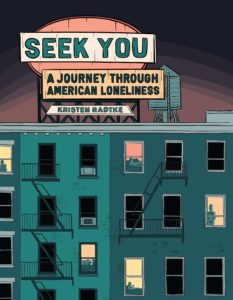
Kristen Radtke, Seek You, Pantheon (July 6)
Kristen Radtke’s stunning 2017 graphic memoir, Imagine Wanting Only This, was a starkly gorgeous journey through the ruins of abandoned places, as well as a profound interrogation of the author’s own feelings of grief, alienation, and ennui. Her latest work, a meditation on isolation and longing, examines the silent epidemic of loneliness in America, from the invention of the laugh-track to the unethical experiments of Harry Harlow. Radtke is a writer of enviable emotional intelligence, and one of our most elegant and virtuosic artists of devastation. –DS
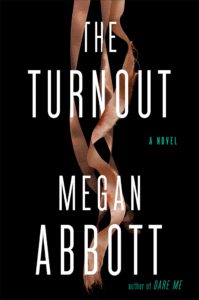
Megan Abbott, The Turnout, Putnam (July 6)
Megan Abbott has already written about the high-stakes (and highly dangerous) sports of cheerleading and gymnastics, and now she turns her attention to the world of ballet. In this semi-gothic tale of a family-run ballet studio, two sisters teach the classes while their injured brother runs the office. Their parents died in a suspicious accident over a decade earlier, but suspicions and resentments need the arrival of an interloper and a ballet season beset by disaster in order to be let loose in their fully monstrous forms. Abbott is not only a suspense author at the top of her game, she’s also a scholar, and The Turnout promises to be both homage to classic tropes and visionary model for their evolution. –MO
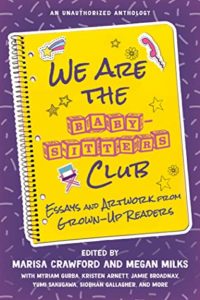
Marisa Crawford and Megan Milks, eds., We Are the Baby-sitters Club: Essays and Artwork from Grown-Up Readers, Chicago Review Press (July 6)
One of my happiest moments of 2020 was binge-watching Netflix’s The Baby-sitters Club with my seven-year-old niece—it was the first time we ever watched something we were equally invested in. I’m excited to keep the BSC vibes going with this fun anthology, featuring work from Myriam Gurba, Kristen Arnett, and others. –ES

Beth Morgan, A Touch of Jen, Little, Brown (July 13)
Sometimes it seems like a book is marketed just for you—and I haven’t been so pumped by publicity copy since Mona Awad’s Bunny (which was pitched as “Heathers meets The Vegetarian” and pretty much held up). This time it’s “Ottessa Moshfegh meets David Cronenberg” but also “a love triangle so toxic that it breaks the order of the universe and unleashes a literal monster.” Reader, it is that toxic. And like Bunny, this book, which masquerades as a funny, mean millennial comedy of un-manners for quite a while until it Takes A Turn, is at least as fun and insane as its comps suggest, if not more. I suspect it’ll be perfect for whatever fresh hell summer 2021 will bring. –ET
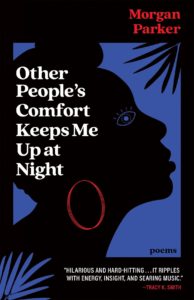
Morgan Parker, Other People’s Comfort Keeps Me Up at Night, Tin House (July 13)
If you, like me, were introduced to Morgan Parker’s work through There Are More Beautiful Things Than Beyoncé (or her 2019 NBCC award-winner Magical Negro), you’ll be pleased to know that Tin House is rereleasing her debut collection, Other People’s Comfort Keeps Me Up at Night, a perfectly Parker-esque take on 21st-century life that’s as sharp and funny as it is powerful. –ES
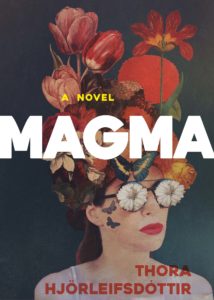
Thora Hjörleifsdóttir, tr. Meg Matich, Magma, Black Cat (July 13)
You are a student at university. You fall head over heels for a man you think is beautiful and smart, despite his constant interrogation of your sex life, your chlamydia, your devotion to him. He lives with a sluggish, sloppy roommate in a sour-smelling cesspool of an apartment, but you love being with him anyway. He’s a vegetarian and scoffs at meat-eaters, so you start eating healthy. He banters with his ex-girlfriend about Derrida and the sex they once had. You spend all your time with him and when you can’t, he gets gloomy, moody. You feel guilty. He sleeps with someone else. You get mad. But get over it quickly. And so it goes. His disrespect for you gets worse. But you don’t notice because the nicks are so small, at first anyway. But you love him. You forgive him. You make excuses. You move in.
People sometimes accept certain forms of abuse, often unnoticeable, but always cumulative, generally until it’s too late: until we’ve lost ourselves, our self-esteem, or everything we once held dear, including our lives. Hjorleifsdottir traces this evolution in bulleted, candid, first-person prose that parallels the quickness in which women’s lives can become less their own. It’s a story as old as love itself but today, the abuse is weaponized by the normalization of such things as internet pornography. At its center is a woman with a heart and dreams as big as the sun, but both shrivel the closer she moves toward this man and away from self. –KA
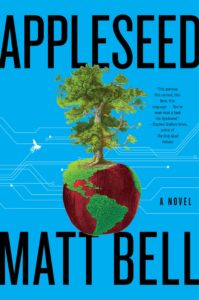
Matt Bell, Appleseed, Custom House (July 13)
Matt Bell follows in the tradition of Kim Stanley Robinson and William Gibson with Appleseed, an epic tale of our coming eco-pocalypse, split between a near-future dystopia at a crossroads, and the distant figures of the future who try to parse what all went wrong. At the heart of both stories is the wondrous apple, and its arsenic-laden seeds. –MO
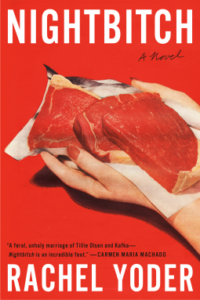
Rachel Yoder, Nightbitch, Doubleday (July 20)
Personally, I’m sold on the cover and title alone. But then there’s the premise: an artist gives up her life to become a stay-at-home mom and then . . . turns into a dog. Or believes she does, at least. So consider me sold twice. Also, um, Carmen Maria Machado called it “a feral, unholy marriage of Tillie Olsen and Kafka,” which has to be one of the best blurbs I have ever read. Send me all your feral, unholy books, please. –ET
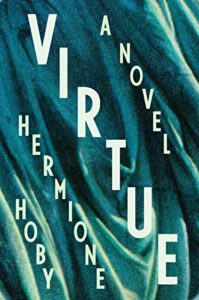
Hermione Hoby, Virtue, Riverhead (July 20)
British author and cultural critic Hemione Hoby’s new novel is the story of a young intern at a once-prominent magazine who is sucked into the marriage of a glamorous and wealthy white couple. Luca is both unnerved and seduced by the relationship dynamics and opulent lifestyle of this famous artist and her filmmaker husband, until a terrible tragedy back in New York jolts him out of his fever dream. Hoby’s luminous 2018 debut, Neon in Daylight, was rightly compared to Renata Adler’s Speedboat, Elizabeth Hardwick’s Sleepless Nights, and Joan Didion’s Play It as It Lays, and her book reviews are always blazingly intelligent and insightful, so I’m greatly looking forward to what promises to be another compelling, cerebral, and linguistically dazzling coming-of-age tale. –DS
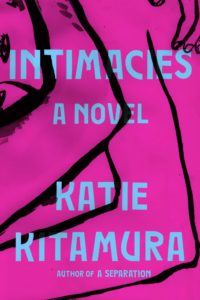
Katie Kitamura, Intimacies, Riverhead (July 20)
I loved Kitamura’s last novel, A Separation, and really, I’d follow her anywhere. But I’m also very much into the sound of this novel, in which an interpreter at the Hague’s International Court becomes entangled in conflicts personal, political, and ontological, and “her coolly impassioned views on power, love, and violence, are tested, both in her personal intimacies and in her role at the Court.” –ET

David Searcy, The Tiny Bee That Hovers at the Center of the World, Random House (July 20)
Once you step inside David Searcy’s sentences, you will not want to leave: artful, Sebald-like, they are as far-reaching as the telescope he hauled out one autumn night in Texas when he showed me the moon. The pace of this philosophy/memoir/mediation/book-length essay is intentional, just like the one-fingered strokes of the typewriter he still uses to write with. He rolls his ideas and observations like marbles in a pocket, until they tumble out smooth and perfectly rounded, which is precisely how he speaks too, should you ever have the pleasure. The Tiny Bee is about everything, in that it’s a “accumulation of ideas toward what the future ought to look like.” On a more earthly plane, it’s about Texas, photography, Martian dust, art, the roads he takes and the ones he doesn’t, and the terrestrial both real and imagined. Even when he writes about fearful, existentialist things, he still makes us feel cozy, like nuzzling a wolf.
If you couldn’t already tell, Searcy is one of my favorite writers—ever. When he writes about building The Mars Receiver (a device to receive signals from Mars, a gesture of hope rather than an actual functioning instrument), he turns a step-by-step tuitional into a work of art: “…first of all, it had to look good. Through my wintery, sad opacity of mind it had to glow. Give forth that clear, intuitive, radiant sense of functional intercessions. Get the faceplate . . . Establish that. The circular screen, the lights and toggle switches. Then attend to theory or whatever passes for it. One can always plead conceptual art, of course. Concept or not. But that’s not it. Start with a beautiful thing, then bring the angels to it.” If you have a soul, you will love this book and Searcy’s writing. –KA
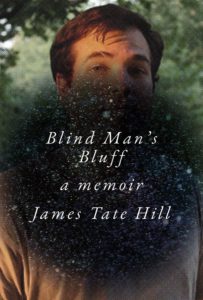
James Tate Hill, Blind Man’s Bluff, W. W. Norton (July 27)
Very large disclaimer: James Tate Hill is a regular contributor to Lit Hub and has always been a writer of deep wisdom, kindness, and—crucially, lest the first two traits get irritating—humor; I can’t imagine a more companionable voice to spend hundreds of pages with. For years Hill refused to accept his diagnosis of Leber’s hereditary optic neuropathy, and went to great lengths to hide his growing visual impairment from the most important people in his life—until it all became just too much. –JD
AUGUST AND BEYOND
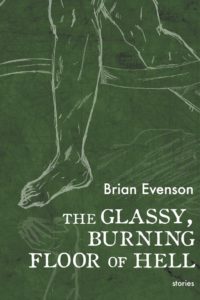
Brian Evenson, The Glassy, Burning Floor of Hell, Coffee House Press (August 3)
Evenson is one of our greatest contemporary writers of literary horror; I’m always psyched—and a little afraid—when he has a new book out. According to the publisher, his latest collection “envisions a chilling future beyond the Anthropocene that forces excruciating decisions about survival and self-sacrifice in the face of toxic air and a natural world torn between revenge and regeneration.” Gah, and also: give it. –ET
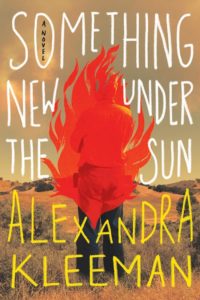
Alexandra Kleeman, Something New Under the Sun, Hogarth (August 3)
Hell yes: I am 100 percent here for a new Alexandra Kleeman novel; five years after its publication, I think about You Too Can Have a Body Like Mine once a week, minimum. Something New Under the Sun sends a novelist to a near-future Los Angeles in which all the rich people drink synthetic water and, according to the publicity copy, “grapples with the corruption of our environment in the age of alternative facts . . . with a meticulous and deeply felt accounting of our very human anxieties, liabilities, dependencies, and, ultimately, our responsibility to truth.” That tracks, and I can’t wait. –ET
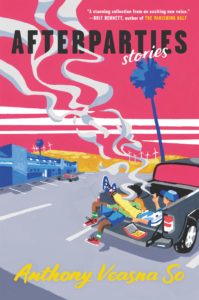
Anthony Veasna So, Afterparties, Ecco (August 3)
We’ve known that Afterparties, a “history-haunted comedy of Cambodian-American manners,” was going to be one of the biggest short story collections of 2021 for a while now, and you might remember So’s story, “Three Women of Chuck’s Donuts,” which was published in the New Yorker in February 2020. So tragically died in December; he was just 28. All we can do now is read his work and celebrate his life. –ET
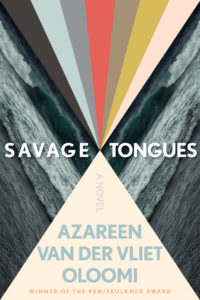
Azareen Van Der Vliet Oloomi, Savage Tongues, Houghton Mifflin (August 3)
Azareen Van Der Vliet Oloomi is no stranger to accolades: a PEN/Faulkner Award winner, a Whiting Award winner, and one of the National Book Foundation’s coveted 5 Under 35?! And, boy oh boy, does she deserve every one of them. I will be anticipating anything she writes. In this case, it’s a novel about an Iranian American teenager who goes abroad to meet her estranged father. Instead, she finds money and instructions to help care for Omar, a forty-year-old man. Instead, she finds an affair that has a hold on her years after its end. Savage Tongues has drawn comparisons to Shirley Jackson and Samanta Schweblin for the way it keeps you suspended in a state of discomfort and hauntingly depicts a shattering of the self. –KY
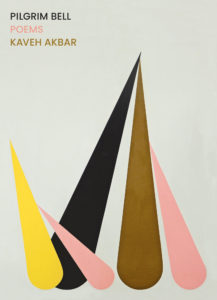
Kaveh Akbar, Pilgrim Bell, Graywolf (August 3)
Every Kaveh Akbar poem feels like a new beginning in a world where they tend to be in short supply; his work is a reminder of grace, of the endless questions that define life and faith, and, most of all, of astonishment. Pilgrim Bell, which follows the 2017 collection Calling a Wolf a Wolf, opens a path of interrogation into the self as it encounters the divine—and encounters the many human-made structures that would dissolve it. It’s a privilege to be a witness to this journey. –CS

Rita Dove, Playlist for the Apocalypse: Poems, W. W. Norton (August 3)
This is a major event: the first collection of poems from Rita Dove—Pulitzer Prize winner, former US Poet Laureate—in 12 years. That’s right: New Rita Dove. Described as “audaciously playful yet grave, alternating poignant meditations on mortality and acerbic observations of injustice . . . [taking] us from the smallest moments of redemption to apocalyptic failures of the human soul,” it sounds like it will have been worth the wait. –ET
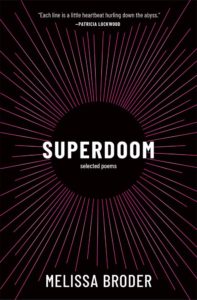
Melissa Broder, Superdoom: Selected Poems, Tin House (August 10)
Said Melissa Broder to Vanity Fair in 2016, “Emily Dickinson would have been great at Twitter,” and Broder herself is evidence. Broder is the face behind the popular Twitter account @sosadtoday, and her poetry has a poster’s concision and punch, leaping from God to lust to the grotesquerie of mortal bodies all in the same few lines. Superdoom features work from Broder’s three out-of-print poetry collections, as well as her fourth and most well-known collection, Last Sext. It’s a greatest hits collection by someone whose hits just keep coming. –WC
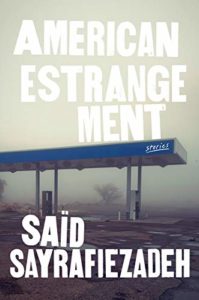
Saïd Sayrafiezadeh, American Estrangement: Stories, W. W. Norton (August 10)
I’ve been waiting for a new collection by Sayrafiezadeh since his excellent debut Brief Encounters with the Enemy, which he published back in 2013. I’m thrilled he’s back, with, as his publisher puts it, a “searing, intimate, often slyly funny,” collection,” a testament to our addled times.” –ET

Alice McDermott, What About the Baby? Some Thoughts on the Art of Fiction, FSG (August 17)
Aspiring writers (or successful ones, for that matter) would very much benefit from spending time with renowned novelist McDermott’s generous ideas about storytelling. Ranging from engaging tales of the writer’s life to more serious technical approaches unpacked with the conversational clarity of a lifelong teacher, What About the Baby? is a craft classic in the making. –JD

Ash Davidson, Damnation Spring, Scribner (August 17)
Damnation Grove is a logging town, always has been. But salmon are disappearing from creeks; mudslides are demolishing hillsides; miscarriage rates are rising. Midwife Colleen Gundersen suspects Sanderson Timber Company’s herbicides, but unraveling the mystery will threaten not just the town’s future but also her future with her husband (and Sanderson employee) Rich, who unbeknownst to her has spent their savings on more logging land in the hopes of giving their son a better life. Just reading the summary of Damnation Spring, I’m filled with dread and sadness—for Damnation Grove, and for all casualties of environmental degradation, past and future. –WC
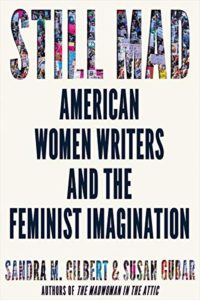
Sandra M. Gilbert and Susan Gubar, Still Mad: American Women Writers and the Feminist Imagination, W. W. Norton (August 17)
Literary critics Sandra M. Gilbert and Susan Gubar, authors of The Madwoman in the Attic, now look at the legacy of literary second wave feminists in Still Mad, which revisits work by Toni Morrison, Adrienne Rich, Ursula K. Le Guin, Maxine Hong Kingston, Gloria Anzaldúa, and others. They offer a valuable, and needed, reconsideration of the writers who provided a basis for further feminist thought, even as the movement, due to the work of Black feminists, expanded over the course of decades toward greater inclusivity. This is a great chance to revisit some of our most foundational writers and thinkers. –CS

Rafia Zakaria, Against White Feminism: Notes on Disruption, W. W. Norton (August 17)
“A white feminist is someone who refuses to consider the role that whiteness and the racial privilege attached to it have played,” Zakaria writes. And you do not have to be white to be a white feminist, she contends. This necessary book is a critique of how whiteness (not white women) has infiltrated feminism and how it should be razor-bladed out of the current form. What does this mean? Look around. Who are the feminists writing about feminism or the experts speaking about feminist policy or leading feminist organizations and what are their assumptions and goals? Do they acknowledge the disproportionate access and networks within their ranks? Zakaria’s critiques orbit her lived experience. For example, Zakaria grew up in Pakistan and saw the women in her life suffer and survive loss, discrimination, migration, and more without ever abandoning those who relied upon them. Part of the current feminist commandments don’t allow for such resilience (to stay rather than leave) and insist upon rebellion instead. Her argument is much more nuanced than my clumsy retelling but know this: Zakaria is a warm-hearted and sharp-eyed writer that brings compassion, intelligence, and a steady drumbeat of change to redefining term—feminism—a word that is old and soggy and full of white ladies yelling about things. This book is going to light fires everywhere, so if you are prone to combust, get right the hell out of the way. –KA
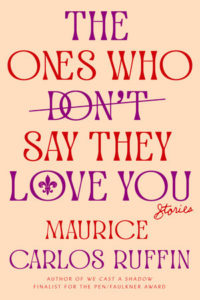
Maurice Carlos Ruffin, The Ones Who Don’t Say They Love You: Stories, One World (August 17)
Maurice Carlos Ruffin follows up on his darkly provocative, critically acclaimed debut novel, We Cast a Shadow, with this collection of stories set in and around his native New Orleans. The characters in Ruffin’s stories struggle, in their various ways, to navigate the depths of a great American city too often mythologized for its flamboyant surfaces. –JD
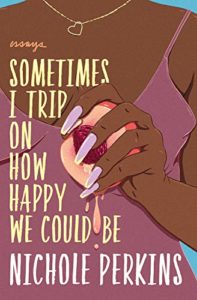
Nichole Perkins, Sometimes I Trip on How Happy We Could Be, Grand Central (August 17)
I love a memoir that takes pop culture as its launching point, both so I can read smart takes on things I’ve been obsessing over and to get briefed on things I’ve missed. To that end, my 2021 summer reading will happily include Nichole Perkins’s meditation on how twenty years of pop culture and the internet affected her psyche as a Black woman from the South. In case you need any more motivation to pre-order this one, it’s one of Roxane Gay’s picks for her new book club. –ES
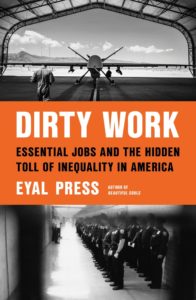
Eyal Press, Dirty Work: Essential Jobs and the Hidden Toll of Inequality in America, FSG (August 17)
It’s easy enough to cheer for essential workers like nurses or delivery drivers or grocery store shelvers (though paying them a fair wage is another thing)—but what about the workers who really make contemporary American capitalism hum? The guys on the kill floor at an industrial slaughterhouse? The penitentiary guards who keep the billion-dollar prison industrial complex bringing in the big bucks? As journalist Eyal Press reveals, these are the really dirty jobs that keep America going, at great personal cost to those doing them. Frankly, it’s just not worth it. –JD

Jaime Cortez, Gordo, Black Cat (August 17)
Gordo is the Winesburg, Ohio of the 21st century—but instead of revealing mid-America of the 1910s, Cortez plumbs the lives of those living in a migrant labor camp in California in the 1970s through the eyes of Gordo, “a fat, precocious nine-year-old sissy boy” (his words, not mine: Litquake 2019). “The Jesus Donut” launches this book like a missile. A man who looks like “Mr. Kentucky Fried Chicken” shows up at Gyrich Farms Worker Camp (the name, Guy-rich, indicates Cortez’s parodic sensibilities) with a van full of donuts for sale, amid five kids, including our narrator, Gordo. Thing is, nobody has a cent. That is until Olga pulls a quarter from her dirty sneaker and buys two for twenty cents. “Body of Christ” says Olga as she raises a donut piece to each kneeling kid (something she insists they do for their reward) and they respond, “Amen” in an impromptu, forced communion. I nearly fell off my chair laughing. Cortez’s dialogue, timing, and humor is quick, dark, and hilarious and the voice of Gordo, singular and soaring, full of naïveté and grit that wrangles humor and human complexity with serious high stakes themes, for in the background, migrant workers carry burdens many of us don’t. While I’ve only read two chapters, I can tell Gordo, like Winesburg, Ohio, is capable of changing not only what it means to be American today, but what American literature can be; that of giving voice to the periphery. Hands down, top debut of 2021. –KA
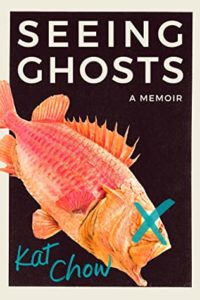
Kat Chow, Seeing Ghosts: A Memoir, Grand Central (August 24)
Kat Chow’s reporting, most recently as a founder of NPR’s Code Switch podcast, has often looked at the ways that cultural identity influences our daily lives and our encounters with institutional power. Now, she turns her focus to the story of her own family—from their roots in China and Hong Kong to their homes in Cuba and the U.S.—and the intergenerational experience of loss. –CS

Paula Hawkins, A Slow Fire Burning, Riverhead (August 31)
Hawkins is fascinated with liminal spaces, those areas that are concerned with travel, or transition. After her highly successful debut, The Girl in the Train, she then headed to the mashes for her sophomore novel, Into the Water, and now, in August’s upcoming release, Hawkins takes to the river with a murder on a houseboat. Three women have equal cause for revenge against the victim, and Hawkins eschews the usual red herrings to keep readers guessing till the end (that’s what I predict, anyway!). –MO

A.K. Blakemore, The Manningtree Witches, Catapult (August)
Rebecca West is a young woman at the margins—scraping by with her mother in a town whose men have been drained into war, doing laundry and needlework for the better off, obsessing over the hot clerk who gives her lessons. But that’s until the Witchfinder comes to town. Set during the 17th-century witch trials in Essex, and based on actual documents from the time, this is a riveting, unsettling story of menace and corruption. Blakemore is also a poet, with two published collections, and you can tell—the absolute fun she has with language in this novel is one of its greatest delights. Curses and descriptions are gilded in equal glory. I loved every minute, and even when I was horrified, I couldn’t look away. –ET

Maggie Nelson, On Freedom: Four Songs of Care and Constraint, Graywolf (September 7)
Maggie Nelson is one of the most important contemporary critics and also one of our most thrilling writers in almost every genre. A new work from her is always something to look forward to, but this one sounds particularly essential, examining the complex meanings behind the concept of freedom in “four distinct realms: art, sex, drugs, and climate.” According to the publicity copy, Nelson’s “abiding interest lies in ongoing “practices of freedom” by which we negotiate our interrelation with-indeed, our inseparability from-others, with all the care and constraint that relation entails, while accepting difference and conflict as integral to our communion.” Very much looking forward to this one. –ET

Lauren Groff, Matrix, Riverhead (September 7)
Listen, Lauren Groff has a new novel, and it’s about Marie de France! What else do you really need to know? (If you need to know more, I guess you can learn a little more here.) As for me, I’m set to smash that pre-order button right now. –ET

Colson Whitehead, Harlem Shuffle, Doubleday (September 14)
The latest novel from Whitehead, one of the most popular and important contemporary novelists, is “a gloriously entertaining novel of heists, shakedowns, and rip-offs” set in 1960s Harlem. The publicity copy calls it “a family saga masquerading as a crime novel, a hilarious morality play, a social novel about race and power, and ultimately a love letter to Harlem.” As a Whitehead completist, I’ll be first in line. –ET
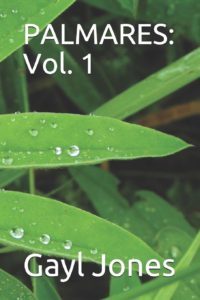
Gayl Jones, Palmares, Beacon Press (September 14)
The first Gayl Jones book I ever read was Corregidora, and I was floored by the quiet force of the novel, which swelled with subtext and required a patient eye. So, I can’t begin to describe how excited I am for Jones’ long-awaited fifth novel, which is her first in 21 years. Palmares is set on the last of seven fugitive settlements in 17th-century colonial Brazil, weaving mythology and magical realism. Jones has been described as “one of the best American novelists whose name you may not know,” but you really want to know this writer and her upcoming book. –RS

Richard Powers, Bewilderment, W. W. Norton (September)
Damn, this is going to be a star-studded fall. It’s pretty impressive that Powers, who won the Pulitzer Prize in 2019 for The Overstory, already has another book, but I won’t complain. Bewilderment concerns Robbie, a neurodivergent 9-year-old boy on a quest to draw all of the animals on the edge of extinction, and his astrobiologist father, Theo. Robbie’s mother has just died, and the experimental treatment keeping him stable by connecting him to her just lost its funding. According to the publisher: “With its soaring descriptions of the natural world, tantalizing vision of life beyond it and the ferocious love of a father for his young son, Bewilderment marks Richard Powers’ most emotionally powerful novel to date. At its heart is the question: What is the world, at once perilous and imperiled, we’ve left for our children to inhabit, and can Theo save Robbie from it?” Yep, I’m already in my feelings. –ET

Jonathan Franzen, Crossroads: A Novel: A Key to All Mythologies, Volume 1, FSG (October 5)
Quelle title, amirite? Whatever your feelings about Franzen (I, your local snob, am weirdly agnostic), his books are always Major Publishing Events, and as such are worthy of your anticipation—either for happily reading or happily dunking on. Or both! In the meantime, here are some facts about it. See you in October. –ET

Jennifer Egan, The Thing That Changes Everything, Little, Brown (October 7)
All I know about the next Jennifer Egan novel is that it exists. But considering the book directly above this one, I have something else to anticipate . . . the literary rematch of the decade! Franzen has (probably) been waiting for this since 2011, when A Visit From the Goon Squad (rightly) trounced the (admittedly also pretty good) Freedom by winning both the Pulitzer and the National Book Critics Circle award. Egan has (probably) not been thinking about it at all. The stuff of legends, folks. –ET

Un-Su Kim, The Cabinet, Angry Robot (October 26)
I loved South Korean writer Un-Su Kim’s weird and wonderful The Plotters, which was translated into English in 2019 by Sora Kim-Russell, so I’m definitely looking forward to reading his debut, which won the Munhakdongne Novel Award when it was published in Korean in 2006. What is is about? Hard to say—but I suspect it’s one of those where you’re better off not knowing until you’re in it. –ET











